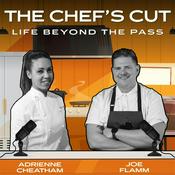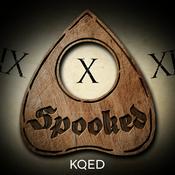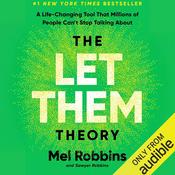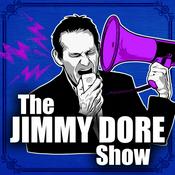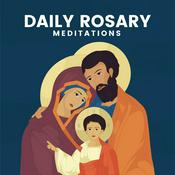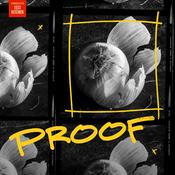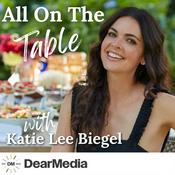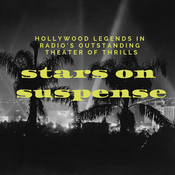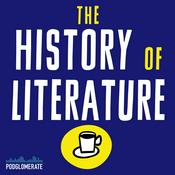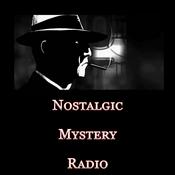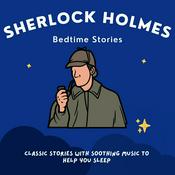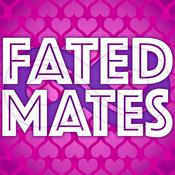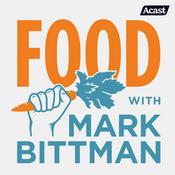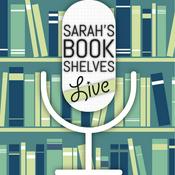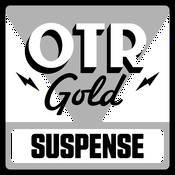37 episodes
- Hermione Lee is the renowned biographer of Virginia Woolf, Edith Wharton, Penelope Fitzgerald, and, most recently, Tom Stoppard. Stoppard died at the end of last year, so Hermione and I talked about the influence of Shaw and Eliot and Coward on his work, the recent production of The Invention of Love, the role of ideas in Stoppard’s writing, his writing process, rehearsals, revivals, movies. We also talked about John Carey, Brian Moore, Virginia Woolf as a critic. Hermione is Emeritus Professor of English Literature at the University of Oxford. Her life of Anita Brookner will be released in September.
Transcript
Henry Oliver: Today I have the great pleasure of talking to Professor Dame Hermione Lee. Hermione was the first woman to be appointed Goldsmiths’ Professor of English Literature at the University of Oxford, and she is the most renowned and admired living English biographer. She wrote a seminal life of Virginia Woolf. She’s written splendid books about people like Willa Cather, Edith Wharton, and my own favorite, Penelope Fitzgerald. And most recently she has been the biographer of Tom Stoppard, and I believe this year she has a new book coming out about Anita Brookner. Hermione, welcome.
Hermione Lee: Thank you very much.
Oliver: We’re mostly going to talk about Tom Stoppard because he, sadly, just died. But I might have a few questions about your broader career at the end. So tell me first how Shavian is Stoppard’s work?
Lee: He would reply “very close Shavian,” when asked that question. I think there are similarities. There are obviously similarities in the delighting forceful intellectual play, and you see that very much in Jumpers where after all the central character is a philosopher, a bit of a bonkers philosopher, but still a very rational one.
And you see it in someone like Henry, the playwright in The Real Thing, who always has an answer to every argument. He may be quite wrong, but he is full of the sort of zest of argument, the passion for argument. And I think that kind of delight in making things intellectually clear and the pleasure in argument is very Shavian.
Where I think they differ and where I think is really more like Chekov, or more like Beckett or more in his early work, the dialogues in T. S. Elliot, and less like Shaw is in a kind of underlying strangeness or melancholy or sense of fate or sense of mortality that rings through almost all the plays, even the very, very funny ones. And I don’t think I find that in Shaw. My prime reading time for Shaw was between 15 and 19, when I thought that Shaw was the most brilliant grownup that one could possibly be listening to, and I think now I feel less impressed by him and a bit more impatient with him.
And I also think that Shaw is much more in the business of resolving moral dilemmas. So in something like Arms and the Man or Man and Superman, you will get a kind of resolution, you will get a sort of sense of this is what we’re meant to be agreeing with.
Whereas I think quite often one of the fascinating things about Stoppard is the way that he will give all sides of the question; he will embody all sides of the question. And I think his alter ego there is not Shaw, but the character of Turgenev in The Coast of Utopia, who is constantly being nagged by his radical political friends to make his mind up and to have a point of view and come down on one side or the other. And Turgenev says, I take every point of view.
Oliver: I must confess, I find The Coast of Utopia a little dull compared to Stoppard’s other work.
Lee: It’s long. Yes. I don’t find it dull. But I think it may be a play to read possibly more than a play to see now. And you’re never going to get it put on again anyway because the cast is too big. And who’s going to put on a nine-hour free play, 50 people cast about 19th-century Russian revolutionaries? Nobody, I would think.
But I find it very absorbing actually. And partly because I’m so interested in Isaiah Berlin, who is a very strong presence in the anti-utopianism of those plays. But that’s a matter of opinion.
Oliver: No. I like Berlin. One thing about Stoppard that’s un-Shavian is that he says his plays begin as a noise or an image or a scene, and then we think of him as this very thinking writer. But is he really more of an intuitive writer?
Lee: I think it’s a terribly good question. I think it gets right at the heart of the matter, and I think it’s both. Sorry, I sound like Turgenev, not making my mind up. But yes, there is an image or there is an idea, or there are often two ideas, as it were, the birth of quantum physics and 18th-century landscape gardening. Who else but Stoppard would put those two things in one play, Arcadia, and have you think about both at once.
But the image and the play may well have been a dance between two periods of time together in one room. So I think he never knew what the next play was going to be until it would come at him, as it were. He often resisted the idea that if he chose a topic and then researched it, a play would come out of it. That wasn’t what happened. Something would come at him and then he would start doing a great deal of research usually for every play.
Oliver: What sort of influence did T. S. Elliot have on him? Did it change the dialogue or, was it something else?
Lee: When I was working with him on my biography, he gave me a number of things. I had extraordinary access, and we can perhaps come back to that interesting fact. And most of these things were loans he gave them to me to work on. Then I gave them back to him.
But he gave me as a present one thing, which was a black notebook that he had been keeping at the time he was writing Rosencrantz and Guildenstern, and also his first and only novel Lord Malquist and Mr. Moon, which is little known, which he thought was going to make his career. The book was published in the same week that Rosencrantz came up. He thought the novel was going to make his career and the play was going to sink without trace. Not so. In the notebook there are many quotations from T. S. Elliot, and particularly from Prufrock and the Wasteland, and you can see him working them into the novel and into the play.
“I am not Prince Hamlet nor was meant to be.” And that sense of being a disconsolate outsider. Ill at ease with and neurotic about the world that is charging along almost without you, and you are having to hang on to the edge of the world. The person who feels themself to be in internal exile, not at one with the universe. I think that point of view recurs over and over again, right through the work, but also a kind of epigrammatical, slightly mysterious crypticness that Elliot has, certainly in Prufrock and in the Wasteland and in the early poems. He loved that tone.
Oliver: Yes. When I read your paper about that I thought about Rosencrantz and Guildenstern quite differently. I’ve always disliked the idea that it’s a sort of Beckett imitation play. It seems very Elliotic having read what you described.
Lee: There is Beckett in there. You can’t get away from it.
Oliver: Surface level.
Lee: Beckett’s there, but I think the sense of people waiting around—Stoppard’s favorite description of Rosencrantz was: “It’s two journalists on a story that doesn’t add up, which is very clever and funny.”
Yes. And that sense of, Vladimir going, “What are we supposed to be doing and how are we going to pass the time?” That’s profoundly influential on Stoppard. So I don’t think it’s just a superficial resemblance myself, but I agree that Elliot just fills the tone of that play and other things too.
Oliver: In the article you wrote about Stoppard and Elliot, the title is about biographical questing, and you also described Arcadia as a quest. How important is the idea of the quest to the way you work and also to the way you read Stoppard?
Lee: I took as the epigraph for my biography of Stoppard a line from Arcadia: “It’s wanting to know that makes us matter, otherwise we’re going out the way we came in.” So I think that’s right at the heart of Stoppard’s work, and it’s right at the heart of any biographical work, whether or not it’s mine or someone else’s. If you can’t know, in the sense of knowing the person, knowing what the person is like, and also knowing as much as possible about them from different kinds of sources, then you might as well give up.
You can’t do it through impressions. You’ve got to do it through knowledge. Of course, a certain amount of intuition may also come into play, though I’m not the kind of biographer that feels you can make things up. Working on a living person, this is the only time I’ve done that.
It was, of course, a very different thing from working on a safely dead author. And I knew Penelope Fitzgerald a little bit, but I had no idea I was going to write her biography when I had conversations with her and she wouldn’t have told me anything anyway. She was so wicked and evasive. But it was a set up thing; he asked me to do it. And we had a proper contract and we worked together over several years, during which time he became a friend, which was a wonderful piece of luck for me.
I was doing four things, really. One was reading all the material that he produced, everything, and getting to know it as well as I could. And that’s obviously the basic task. One was talking to him and listening to him talk about his life. And he was very generous with those interviews. I’m sure there were things he didn’t tell me, but that’s fine. One was talking to other people about him, which is a very interesting process. And with someone like him who knew everyone in the literary, theatrical, cultural world, you have to draw a halt at some point. You can’t talk to a thousand people, or I’d have still been doing it, so you talk to particularly fellow playwrights, directors, actors who’ve worked with him often, as well as family and friends. And then you start pitting the versions against each other and seeing what stands up and what keeps being said.
Repetition’s very important in that process because when several people say the same thing to you, then you know that’s right. And that quest also involves some actual footsteps, as Richard Holmes would say. Footsteps. Traveling to places he’d lived in and going to Darjeeling where he had been to school before he came to England, that kind of travel.
And then the fourth, and to me, in a way, almost the most exciting, was the opportunity to watch him at work in rehearsal. So with the director’s permissions, I was allowed to sit in on two or three processes like that, the 50th anniversary production of Rosencrantz and Guildenstern at the Old Vic with David Lavoie. And Patrick Marber’s wonderful production of Leopoldstadt and Nick Hytner’s production of The Hard Problem at the National. So I was able to witness the very interesting negotiations going on between Tom and the director and the cast.
And also the extraordinary fact that even with a play like Rosencrantz, which is on every school syllabus and has been for 50—however many years—he was still changing things in rehearsal. I can’t get over that. And in his view, as he often said, theater is an event and not a text, and so one could see that actual process of things changing before one’s very eyes, and that for a biographer, it’s a pretty amazing privilege.
Oliver: How much of the plays were written during rehearsal do you think?
Lee: Oh, 99% of the plays were written with much labor, much precision, much correction alone at his desk. The text is there, the text is written, and everything changes when you go into the rehearsal room because you suddenly find that there isn’t enough time with that speech for the person to get from the bed to the door. It’s physics; you have to put another line in so that someone can make an entrance or an exit, that kind of thing.
Or the actors will say quite often, because they were a bit in awe—by the time he became well known—the actors initially would be a bit in awe of the braininess and the brilliance. And quite often the actors will be saying, “I’m sorry, I don’t understand. I don’t understand this.” You’d often get, “I don’t really understand.”
And then he would never be dismissive. He would either say, “No, I think you’ve got to make it work.” I’m putting words into his mouth here. Or he would say, “Okay, let’s put another sentence or something like that.”
Oliver: Between what he wrote at his desk and the book that’s available for purchase now, how much changed? Is it 10%, 50? You know what I mean?
Lee: Yes. You should be talking to his editor at Faber, Dinah Wood. So Faber would print a relatively small number for the first edition before the rehearsal process and the final production. And then they would do a second edition, which would have some changes in it. So 2%. Okay. But crucial sometimes.
Oliver: No, sure. Very important.
Lee: And also some plays like Jumpers went through different additions with different endings, different solutions to plot problems. Travesties, he had a lot of trouble with the Lenins in Travesties because it’s the play in which you’ve got Joyce and you’ve got Tristan Tzara and you’ve got the Lenins, and they’re all these real people and he makes him talk.
But he was a little bit nervous about the Lenin. So what he gave him to say were things that they had really said, that Lenin had really said. As opposed to the Tzara-Joyce stuff, which is all wonderfully made up. The bloody Lenins became a bit of a problem for him. And so that gets changed in later editions you’ll find.
Oliver: How closely do you think The Real Thing is based on Present Laughter by Noël Coward?
Lee: Oh, I think there’s a little bit of Coward in there. Yes, sure. I think he liked Coward, he liked Wilde, obviously. He likes brilliant, witty, playful entertainers. He wants to be an entertainer. But I think The Real Thing, he was proud of the fact that The Real Thing was one of the few examples of his plays at that time, which weren’t based on something else. They weren’t based on Hamlet. They weren’t based on The Importance of Being Earnest. It’s not based on a real person like Housman. I think The Real Thing came out of himself much more than out of literary models.
Oliver: You don’t think that Henry is a bit like the actor character in Present Laughter and it’s all set in his flat and the couples moving around and the slight element of farce?
The cricket bat speech is quite similar to when Gary Essendine—do you remember that very funny young man comes up on the train from Epping or somewhere and lectures him about the social value of art. And Gary Essendine says, “Get a job in a theater rep and write 20 plays. And if you can get one of them put on in a pub, you’ll be damn lucky.” It’s like a model for him, a loose model.
Lee: Yes. Henry, I think you should write an article comparing these two plays.
Oliver: Okay. Very good. What does Stoppardian mean?
Lee: It means witty. It means brilliant with words. It means fizzing with verbal energy. It means intellectually dazzling. The word dazzling is the one that tends to get used. My own version of Stoppardian is a little bit different from, as it were, those standard received and perfectly acceptable accounts of Stoppardian.
My own sense of Stoppardian has more to do with grief and mortality and a sense of not belonging and of puzzlement and bewilderment, within all that I said before, within the dazzling, playful astonishing zest and brio of language and the precision about language.
Oliver: Because it’s a funny word. It’s hard to include Leopoldstadt under the typical use of Stoppardian, because it’s an untypical Stoppard.
Lee: One of the things about Leopoldstadt that I think is—let’s get rid of that trope about Stoppardian—characteristic of him is the remarkable way it deals with time. Here’s a play like Arcadia, all set in the same place, all set in the same room, in the same house, and it goes from a big hustling room, late 19th-century family play, just like the beginning of The Coast of Utopia, where you begin with a big family in Russia and then it moves through the ’20s and then into the terrible appalling period of the Anschluss and the Holocaust.
And then it ends up after the war with an empty room. This room, is like a different kind of theater, an empty room. Three characters, none of whom you know very well, speaking in three different kinds of English, reaching across vast spaces of incomprehension, and you’ve had these jumps through time.
And then at the very end, the original family, all of whom have been destroyed, the original family reappears on the stage. I’m sorry to tell this for anyone who hasn’t seen Leopoldstadt. Because when it happens on the stage, it’s an absolutely astonishing moment. As if the time has gone round and as if the play, which I think it was for him, was an act of restitution to all those people.
Oliver: How often did he use his charm to get his way with actors?
Lee: A lot. And not just actors. People he worked with, film people, friends, companions. Charm is such an interesting thing, isn’t it? Because we shouldn’t deviate, but there’s always a slightly sinister aspect to the word charm as in, a magic charm. And one tends to be a bit suspicious of charm. And he knew he had charm and he was physically very magnetic and good looking and very funny and very attentive to people.
But I think the charm, in his case, he did use it to get the right results, and he did use it, as he would say, “to look after my plays.” He was always, “I want to look after my plays.” And that’s why he went back to rehearsal when there were revivals and so on. But he wasn’t always charming. Patrick Marber, who’s a friend of his and who directed Leopoldstadt, is very good on how irritable Stoppard could be sometimes in rehearsal. And I’ve heard that from other directors too—Jack O’Brien, who did the American productions of things like The Invention of Love.
If Stoppard felt it wasn’t right, he could get quite cross. So this wasn’t a sort of oleaginous character at all. It’s not smooth, it’s not a smooth charm at all. But yes, he knew his power and he used it, and I think in a good way. I think he was a benign character actually. And one of the things that was very fascinating to me, not only when he died and there was this great outpouring of tributes, very heartfelt tributes, I thought. But also when I was working on the biography, I was going around the world trying to find people to say bad things about him, because what I didn’t want to do was write a hagiography. You don’t want to do that; there would be no point. And it was genuinely quite hard.
And I don’t know the theater world; it’s not my world. I got to know it a little bit then. But I have never necessarily thought of the theater world as being utterly loving and generous about everybody else. I’m sure there are lots of rivalries and spitefulness, as there is in academic life, all the rest of it. But it was very hard to find anyone with a bad word to say about him, even people who’d come up against the steeliness that there is in him.
I had an interview with Steven Spielberg about him, with whom he worked a lot, and with whom he did Empire of the Sun. And I would ask my interviewees if they could come up with two or three adjectives or an adjective that would sum him up, that would sum Stoppard up to them. And when I asked Spielberg this question, he had a little think and then he said, intransigent. I thought, great. He must be the only person who ever stood up to him.
Oliver: What was his best film script? Did he write a really great film.
Lee: That one. I think partly the novel, I don’t know if you know the Ballard novel, the Empire of the Sun, it’s a marvelous novel. And Ballard was just a magical and amazing writer, a great hero of mine. But I think what Stoppard did with that was really clever and brilliant.
I know people like Brazil, the Terry Gilliam sort of surrealist way. And there’s some interesting early work. Most of his film work was not one script; it was little bits that he helped with. So there’s famously the Indiana Jones and the Last Crusade, he did most of the dialogue for Harrison Ford.
But there are others like the One Hundred and One Dalmatians, where I think there’s one line, anonymously Stoppardian in there. One of the things about the obituaries that slightly narked me was that there, I felt there was a bit too much about the films. Truly, I don’t think the film work was—he wanted it to be right and he wanted to get it right—but it wasn’t as close to his heart as the theater work. And indeed the work for radio, which I thought was generally underwritten about when he died. There was some terrific work there.
Oliver: Yes. And there aren’t that many canonical writers who’ve been great on the radio.
Lee: Absolutely. He did everything. He did film, he did radio. He wrote some opera librettos. He really did everything. And on top of that, there was the great work for the public good, which I think is a very important part of his legacy, his history.
Oliver: How much crossover influence is there between the different bits of his career? Does the screenwriting influence the theater writing and the radio and so on? Or is he just compartmentalized and able to do a lot of different things?
Lee: That’s such an interesting question. I don’t think I’ve thought about it enough. I think there are very cinematic aspects to some of the plays, like Night and Day, for instance, the play about journalism. That could easily have been a film.
And perhaps Hapgood as well, although it could be a kind of John le Carré type film thriller, though it’s such a set of complicated interlocking boxes that I don’t know that it would work as a film. It’s not one of my favorite players, I must say. I struggle a little bit with Hapgood. But, yes, I’m sure that they fed into each other. Because he was so busy, he was often doing several things at once. So he was keeping things in boxes and opening the lid of that box. But mentally things must have overlapped, I’m sure.
Oliver: He once joked that rather than having read Wittgenstein from cover to cover, he had only read the covers. How true is that? Because I know some people who would say he’s very clever in everything, but he’s not as clever as he looks. It’s obviously not true that he only read the covers.
Lee: I think there was a phase, wasn’t there, after the early plays when people felt that he was—it’s that English phrase, isn’t it—too clever by half. Which you would never hear anyone in France saying of someone that they were too clever by half. So he was this kind of jazzy intellectual who put all his ideas out there, and he was this sort of self-educated savant who hadn’t been to Oxford.
There was quite a lot of that about in the earlier years, I think. And a sense that he was getting away with it, to which I would countermand with the story of the writing of The Invention of Love. So what attracted him to the figure of Housman initially was not the painful, suppressed homosexual love story, but the fact that here was this person who was divided into a very pernickety, savagely critical classical editor of Latin and a romantic lyric poet. In order to work out how to turn this into a play, he probably spent about six years taking Latin lessons, reading everything he could read on the history of classical literature. Obviously reading about Housman, engaging in conversation with classical scholars about Housman’s, finer points of editorial precision about certain phrases. And what he used from that was the tip of the iceberg. But the iceberg was real.
He really did that work and he often used to say that it was his favorite play because he’d so much enjoyed the work that went into it. I think he took what he needed from someone like Wittgenstein. I know you don’t like The Coast of Utopia very much, but if you read his background to Coast of Utopia, what went into it, and if you compare what’s in the plays, those three plays, with what’s in the writing about those revolutionaries, he read everything. He may have magpied it, but he’s certainly knows what he’s talking about. So I defend him a bit against that, I think.
Oliver: Good, good. Did you see the recent production at the Hamstead Theatre of The Invention of Love?
Lee: I did, yes.
Oliver: What did you think?
Lee: I liked it. I thought it was rather beautifully done. I liked those boats rowing around that clicked together. I thought Simon Russell Beale was extremely good, particularly very moving. And very good in Housman’s vindictiveness as a critic. He is not a nice person in that sense. And his scornfulness about the women students in his class, that kind of thing. And so there was a wonderful vitriol and scorn in Russell Beale’s performance.
I think when you see it now, some of the Oxford context is a little bit clunky, those scenes with Jowett and Pater and so on, it’s like a bit of a caricature of the context of cultural life at the time, intellectual life at the time. But I think that the trope of the old and the young Housman meeting each other and talking to each other, which I still think is very moving. I thought it worked tremendously well.
Oliver: What are Tom Stoppard’s poems like?
Lee: You see them in Indian Ink where he invents a poet, Flora Crewe, who is a poet who was died young, turn of the century, bold feminist associated with Bloomsbury and gets picked up much later as a kind of Sylvia Plath-type, HD type heroine. And when you look at Stoppard’s manuscripts in the Harry Ransom Center in the University of Austin, in Texas, there is more ink spent on writing and rewriting those poems of Flora Crewe than anything else I saw in the manuscript. He wrote them and rewrote them.
Early on he wrote some Elliot—they’re very like Elliot—little poems for himself. I think there are probably quite a lot of love poems out there, which I never saw because they belong to the people for whom he wrote them. So I wouldn’t know about those.
Oliver: How consistently did Stoppard hold to a kind of liberal individualism in his politics?
Lee: He was accused of being very right wing in the 1980s really, 1970s, 1980s, when the preponderant tendency for British drama was radicalism, Royal Court, left wing, all of that. And Stoppard seemed an outlier then, because he approved of Thatcher. He was a friend of Thatcher. He didn’t like the print union. It was particularly about newspapers because he’d been a newspaper man in his youth. That was his alternative university education, working in Bristol on the newspapers. He had a romance heroic feeling about the value of the journalist to uphold democracy, and he hated the pressure of the print unions to what he thought at the time was stifling that.
He changed his mind. I think a lot about that. He had been very idealistic and in love with English liberal values. And I think towards the end of his life he felt that those were being eroded. He voted lots of different ways. He voted conservative, voted green. He voted lib dem. I don’t if he ever voted Labour.
Oliver: But even though his personal politics shifted and the way he voted shifted, there is something quite continuous from the early plays through to Rock ‘n’ Roll. Is there a sort of basic foundation that doesn’t change, even though the response to events and the idea about the times changes?
Lee: Yes, I think that’s right, and I think it can be summed up in what Henry says in The Real Thing about politics, which is a version of what’s often said in his plays, which is public postures have the configuration of private derangement. So that there’s a deep suspicion of political rhetoric, especially when it tends towards the final solution type, the utopian type, the sense that individual lives can be sacrificed in the interest of an ultimate rationalized greater good.
And then, he’s worked in the ’70s for the victims of Soviet communism. His work alongside in support of Havel and Charter 77. And he wrote on those themes such as Every Good Boy Deserves Favour and Professional Foul. Those are absolutely at the heart of what he felt. And they come back again when he’s very modest about this and kept it quiet. But he did an enormous amount of work for the Belarus exile, Belarus Free Theater collective, people in support of those trying to work against the regime in Belarus.
And then the profound, heartfelt, intense feeling of horror about what happened to people in Leopoldstadt. That’s all part of the same thing. I think he’s a believer in individual freedom and in democracy and has a suspicion of political rhetoric.
Oliver: How much were some of his great parts written for specific actors? Because I sometimes have a feeling when I watch one of his plays now, if I’d been here when Felicity Kendal was doing this, I would be getting the whole thing, but I’m getting most of it.
Lee: I’m sure that’s right. And he built up a team around him: Peter Wood, the director and John Wood who’s such an extraordinary Henry Carr in in in Travesties. And Michael Hordern as George the philosopher in Jumpers. And he wrote a lot for Kendal, in the process of becoming life companions.
But he’d obviously been writing and thinking of her very much, for instance, in Arcadia. And also I think very much, it’s very touching now to see the production of Indian Ink that’s running at Hampstead Theatre in which Felicity Kendal is playing the older woman, the surviving older sister of the poet Flora Crewe, where of course the part of Flora Crewe was written for her. And there’s something very touching about seeing that now. And, in fact, the first night of that production was the day of Stoppard’s funeral. And Kendal couldn’t be at the funeral, of course, because she was in the first night of his play. That’s a very touching thing.
Oliver: Why did he think the revivals came too soon?
Lee: I don’t really know the answer to that. I think he thought a play had to hook up a lot of oxygen and attract a lot of attention. If you were lucky while it was on, people would remember the casting and the direction of that version of it, and it would have a kind of memory. You had to be there.
But people who were there would remember it and talk about it. And if you had another production very soon after that, then maybe it would diminish or take away that effect. I think he had a sort of loyalty to first productions often. What do you think about that? I’m not quite sure of the answer to that.
Oliver: I don’t know. To me it seems to conflict a bit with his idea that it’s a living thing and he’s always rewriting it in the rehearsal room. But I think probably what you say is right, and he will have got it right in a certain way through all that rehearsing. You then need to wait for a new generation of people to make it fresh again, if you like.
Lee: Or not a generation even, but give it five years.
Oliver: Everyone new and this theater’s working differently now. We can rework it in our own way. Can we have a few questions about your broader career before we finish?
Lee: Depends what they are.
Oliver: Your former colleague John Carey died at a similar time to Stoppard. What do you think was his best work?
Lee: John Carey’s best work? Oh. I thought the biography of Golding was pretty good. And I thought he wrote a very good book on Thackery. And I thought his work on Milton was good. I wasn’t so keen on The Intellectuals and the Masses. He and I used to have vociferous arguments about that because he had cast Virginia Woolf with all the modernist fascists, as it were. He’d put her in a pile with Wyndham Lewis and Ezra Pound and so on. And actually, Virginia Woolf was a socialist feminist. And this didn’t seem to have struck him because he was so keen to expose her frightful snobbery, which is what people in England reading Woolf, especially middle class blokes, were horrified by.
And she is a snob, there’s no doubt about it. But she knew that and she lacerated herself for it too. And I think he ignored all the other aspects of her. So I was angry about that. But he was the kind of person you could have a really good argument with. That was one of the really great things about John.
Oliver: He seems to be someone else who was amenable and charming, but also very steely.
Lee: Yes, I think he probably was I think he probably was. You can see that in his memoir, I think.
Oliver: What was Carmen Callil like?
Lee: Oh. She was a very important person in my life. It was she who got me involved in writing pieces for Virago. And it was she who asked me to write the life of Virginia Woolf for Chatto. And she was an enormous, inspiring encourager as she was to very many people. And I loved her.
But I was also, as many people were, quite daunted by her. She was temperamental, she was angry. She was passionate. She was often quite difficult. Not a word I like to use about women because there’s that trope of difficult women, but she could be. And she lost her temper in a very un-English way, which was quite a sight to behold. But I think of her as one of the most creative and influential publishers of the 20th century.
Oliver: Will there be a biography of her?
Lee: I don’t know. Yes, it’s a really interesting question, and I’ve been asking her executors whether they have any thoughts about that. Somebody said to me, oh, who wants a biography of a publisher? But, actually, publishers are really important people often, so I hope there would be. Yes. And it would need to be someone who understood the politics of feminism and who understood about coming from Australia and who understood about the Catholic background and who understood about her passion for France. And there are a whole lot of aspects to that life. It’s a rich and complex life. Yes, I hope there will be someday.
Oliver: Her papers are sitting there in the British Library.
Lee: They are. And in fact—you kindly mentioned this to start with—I’ve just finished a biography of the art historian and novelist, Anita Brookner, who won the Booker prize in 1984 for a novel called Hotel du Lac.
And Carmen and Anita were great buddies, surprisingly actually, because they were very different kinds of characters. And the year before she died, Carmen, who knew I was working on Anita, showed me all her diary entries and all the letters she’d kept from Anita. And that’s the kind of generous person that she was.
That material is now sitting in the British Library, along with huge reams of correspondence between Carmen and many other people. And it’s an exciting archive.
Oliver: She seems to have had a capacity to be friends with almost anyone.
Lee: Yes, I think there were people she would not have wanted to be friends with. She was very disapproving of a lot of political figures and particularly right-wing figures, and there were people she would’ve simply spat at if she was in the room with them. But, yes, she an enormous range of friends, and she was, as I said, she was fantastically encouraging to younger women writers.
And, also, another aspect of Carmen’s life, which I greatly admired and was fascinated by: In Virago she would often be resuscitating the careers of elderly women writers who had been forgotten or neglected, including Antonia White and including Rosamund Lehmann. And part of Carmen’s job at Virago, as she felt, was not just to republish these people, some of whom hadn’t had a book published for decades, but also to look after them. And they were all quite elderly and often quite eccentric and often quite needy. And Carmen would be there, bringing them out and looking after them and going around to see them. And really marvelous, I think.
Oliver: Yes, it is. Tell me about Brian Moore.
Lee: Breean, as he called himself.
Oliver: Oh, I’m sorry.
Lee: No, it’s all right. I think Brian became a friend because in the 1980s I had a book program on Channel 4, which was called Book Four. It had a very small audience, but had a wonderful time over several years interviewing lots and lots of writers who had new books out. We didn’t have a budget; it was a table and two chairs and not the kind of book program you see on the television anymore. And I got to know Brian through that and through reviewing him a bit and doing interviews with him, and my husband and I would go out and visit him and his wife Jean.
And I loved the work. I thought the work was such a brilliant mixture of popular cultural forms, like the thriller and historical novel and so on. And fascinating ideas about authority and religion and how to be free, how to break free of the bonds of what he’d grown up with in Ireland, in Northern Ireland, the bombs of religious autocracy, as it were. And very surreal in some ways as well. And he was also a very charming, funny, gregarious person who could be quite wicked about other writers.
And, he was a wonderfully wicked and funny companion. What breaks my heart about Brian Moore is that while he was alive, he was writing a novel maybe every other year or every three years, and people would review them and they were talked about, and I don’t think they were on academic syllabuses but they were really popular. And when he died and there were no more books, it just went. You can think of other writers like that who were tremendously well known in their time. And then when there weren’t any more books, just went away. You ask people, now you go out and ask people, say, “What about The Temptation of Eileen Hughes or The Doctor’s Wife or Black Robe? And they’ll go, “Sorry?”
Oliver: If anyone listening to this wants to try one of his novels, where do you say they should start?
Lee: I think I would start with The Doctor’s Wife and The Temptation of Eileen Hughes. And then if one liked those, one would get a taste for him. But there’s plenty to choose from.
Oliver: What about Catholics?
Lee: Yes. Catholics is a wonderful book. Yes. Wonderful book. Bit like Muriel Spark’s The Abbess of Crewe, I think.
Oliver: How important is religion to Penelope Fitzgerald’s work?
Lee: She would say that she felt guilty about not having put her religious beliefs more explicitly into her fiction. I’m very glad that she didn’t because I think it is deeply important and she believes in miracles and saints and angels and manifestations and providence, but she doesn’t spell it out.
And so when at the end of The Gate of Angels, for instance, there is a kind of miracle on the last page but it’s much better not to have it spelt out as a miracle, in my view. And in The Blue Flower, which is not my favorite of her books, but it’s the book of the greatest genius possibly. And I think she was a genius. There is a deep interest in Novalis’s romantic philosophical ideas about a spiritual life, beyond the physical life, no more doctrinally than that. And she, of course, believes in that. I think she believed, in an almost Platonic way, that this life was a kind of cave of shadows and that there was something beyond that. And there are some very mysterious moments in her books, which, if they had been explained as religious experiences, I think would’ve been much less forceful and much less intense.
Oliver: What is your favorite of her books?
Lee: Oh, The Beginning of Spring. The Beginning of Spring is set in Moscow just before the revolution. And its concerns an Englishman who runs a print and publishing works. And it’s based quite a lot on some factual narratives about people in Moscow at the time. And it’s about the feeling of that place and that time, but it’s also about being in love with two people at the same time.
And, yes, and it’s about cultural clashes and cultural misunderstanding, and it is an astonishingly evocative book. And when asked about this book, interviewers would say to Penelope, oh, she must have lived in Moscow for ages to know so much about it. And sometimes she would say, “Yes, I lived there for years.” And sometimes she would say, “No, I’ve never been there in my life.” And the fact was she’d had a week’s book tour in Moscow with her daughter. And that was the only time she ever went to Russia, but she read. So it was a wonderful example of how she would be so wicked; she would lie.
Oliver: Yes.
Lee: Because she couldn’t be bothered to tell the truth.
Oliver: But wasn’t she poking fun at their silly questions?
Lee: Yes. It’s not such a silly question. I would’ve asked her that question. It is an astonishing evocation of a place.
Oliver: No, I would’ve asked it too, but I do feel like she had this sense of it’s silly to be asked questions at all. It’s silly to be interviewed.
Lee: I interviewed her about three times—and it was fascinating. And she would deflect. She would deflect, deflect. When you asked her about her own work, she would deflect onto someone else’s work or she would tell you a story. But she also got quite irritable.
So for instance, there’s a poltergeist in a novel called The Bookshop. And the poltergeist is a very frightening apparition and very strong chapter in the book. And I said to her in interview, “Look, lots of people think this is just superstition. There aren’t poltergeists.” And she looked at me very crossly and said they just haven’t been there. They don’t know what they’re talking about. Absolutely factual and matter of fact about the reality of a poltergeist.
Oliver: What makes Virginia Woolf’s literary criticism so good?
Lee: Oh, I think it’s a kind of empathy actually. That she has an extraordinary ability to try and inhabit the person that she’s writing about. So she doesn’t write from the point of view of, as it were, a dry, historical appreciation.
She’s got the facts and she’s read the books, but she’s trying to intimately evoke what it felt like to be that writer. I don’t mean by dressing it up with personal anecdotes, but just she has an extraordinary way of describing what that person’s writing is like, often in images by using images and metaphors, which makes you feel you are inside the story somehow.
And she loves anecdotes. She’s very good at telling anecdotes, I think. And also she’s not soft, but she’s not harshly judgmental. I think she will try and get the juice out of anything she’s writing about. Most of these literary criticism pieces were written for money and against the clock and whilst doing other things.
So if you read her on Dorothy Wordsworth or Mary Wollstonecraft or Henry James, there’s a wonderful sense of, you feel your knowledge has been expanded. Knowledge in the sense of knowing the person; I don’t mean in the sense of hard facts.
Oliver: Sure. You’ve finished your Anita Brookner biography and that’s coming this year.
Lee: September the 10th this year, here and in the States.
Oliver: What will you do next?
Lee: Yes. That’s a very good question, though a little soon, I feel.
Oliver: Is there someone whose life you always wanted to write, but didn’t?
Lee: No. No, there isn’t. Not at the moment. Who knows?
Oliver: You are open to it. You are open.
Lee: Who knows what will come up.
Oliver: Yes. Hermione Lee, this was a real pleasure. Thank you very much.
Lee: Thank you very much. It was a treat.
This is a public episode. If you would like to discuss this with other subscribers or get access to bonus episodes, visit www.commonreader.co.uk - This episode of The Common Reader podcast is a little different. I spoke to both Jeffrey Lawrence and Julianne Werlin about literature, politics, and the future of the academic humanities. Questions included: what do we mean when we talk about literature and markets? Can we leave politics out of literary discussion? Should we leave it out? If we can’t leave it out, can we have nice friendly conversations about it? What is academic Marxism? We also talked about whether Stephen Greenblatt is too ideological and why universities are necessary to literary culture, academics on Substack.
Julianne writes Life and Letters. Jeffrey writes Avenues of the Americas. Here is Julianne’s interview in The Republic of Letters.
Transcript (AI generated, will contain some errors)
Henry Oliver (00:00)
Today I am talking to Jeffrey Lawrence and Julianne Werlin.
Jeffrey is a professor of English literature and comparative literature at Rutgers University. He specializes in the 20th and 21st century and he writes the sub stack, Avenues of America. Julianne probably needs no introduction to a sub stack audience. She writes Life and Letters, one of my favorite sub stacks. She’s a professor of English at Duke University, where as well as specializing in early modern poetry, she is interested in sociological and demographic studies of literature.
and we are going to have a big conversation about literature and markets, politics, what do we mean when we talk about literature and markets, can we leave politics out of literary discussion, should we leave it out, if we can’t leave it out, can we have nice friendly conversations about it, and also maybe what is academic Marxism and what should it be and why is it so confusing? Jeffrey and Julianne, hello.
Julianne (00:59)
Hi.
Jeffrey Lawrence (01:01)
Hi, thanks for having us.
Julianne (01:02)
Yeah, thank you.
Henry Oliver (01:04)
I am going to start by referencing an interview that you did, Julianne, for Republic of Letters, which everyone has been reading. And you said, I’ve printed it out wrong, so I can’t read the whole quote. But you said something like, you joined Substack because you wanted people to talk with and because you felt a lack of debate in your academic field. There are lots of good things about scholarship being slow and careful, but it also needs to be animated by debate and conversation.
and a sense of the stakes of what we’re doing, and that is eroding in the academy. So I want you both to talk about that. Why is that happening? How much of a problem is it? How much is Substack or the internet more generally the solution? What should we be doing? Why don’t we go to Julianne first, because it’s your quote.
Julianne (01:54)
Sure, I mean, won’t go on too long ⁓ since I have already spoken about this, but my sense within English departments is, you know, they’re becoming smaller, fewer people are taking our classes, we have much less of a role in public conversation and public debate, except as kind of a stalking horse for certain types of arguments. And certainly, if you are an early modernist, it’s very hard to locate a kind of a...
Henry Oliver (02:14)
You
Julianne (02:25)
discrete set of debates within early modern literature because there is so little public salience to literary fields. And I think this is happening in all literature. It’s especially pronounced if you’re working in the earlier periods. So my sense in joining SUBSTAC was that perhaps there will be debates by people who are not already so deep within the particular professional and disciplinary structures of a field that they can
find new points of connection between literature and public life along different ⁓ axes that we have maybe not explored adequately within English departments and are maybe becoming harder to explore as English departments contract and recede from public life.
Henry Oliver (03:04)
Mm-hmm.
So we’re bringing Milton back to the people and also finding out why they care about him at all. ⁓ What do you think about it, Geoff?
Julianne (03:16)
Well, hopefully. I mean, that’s the goal.
Jeffrey Lawrence (03:21)
Great, ⁓ so I actually restacked that specific quote from Julianne because it resonated so much with me. Yeah, I mean, my sense is that as someone who works on 20th and 21st century literature, there is more crossover there, I would say, between sort of academic scholarship and public debate. But I really wanna just echo what Julianne said there, that ⁓ I have gotten the feeling that within
let’s call it like the legacy media. There are particular arguments that come from academia that are pushed forward and that become representative of the field of 20th and 21st century literature as a whole. And those kind of come to stand in for academic debate more generally. And I think it becomes very difficult. One of the things that I was noticing so much is
that the people who had access to those legacy journals, are places like the Atlantic, the New York Times, that those began to dominate the debates and people just aren’t recognizing that in scholarships. So one of the things I particularly like about Substack is that I feel like although it has some of the same problems as social media more generally about kind of like who gets to participate and algorithmic culture and all of that sort of stuff.
I did feel like the ideological diversity both left and right compared to the sort of a kind of monoculture, mono, you know, sort of academic argument that I found over and over in these legacy magazines, that Substack was the place where a lot of these debates are happening. And I only joined maybe four or five months ago, but for me,
⁓ sort of just in terms of my relationship to the Academy, it’s really changed my sense of what can be said and what’s being said by academics.
Henry Oliver (05:17)
feels to me like in some way humanities academia needs deregulating because there’s all sorts of things people can’t feel like they can’t say and can’t do. But it’s such a tangled mess that the easiest thing is for you all to just go to Substack and do it there and just try and avoid the bureaucracy because it’s gone too far. But when you’re on Substack...
I feel like you’re often faced with people saying, these English literature academics, it’s all woke BS. They don’t know anything. They’ve killed this, right? You’re simultaneously in a kind of semi hostile environment. How do you, how does that seem to you?
Julianne (05:56)
Yeah, mean, that’s certainly true. I think that we are avatars on Substack for a kind of authority that we feel in our own lives we do not possess in any way. So we’re in this position where, you know, at least I feel this, I’m responding to comments that are, you know, very much, by people who very much feel that they’re attacking authority figures. And I’m, you know, I’m just a person on the internet, you know, talking with them when I’m on Substack. What I like about it is precisely that it levels any kind of authority structures insofar as they exist, which is debatable at this phase. But that’s not always the reality on Substack. I also feel there’s an additional thing, again, as an early modernist, where you feel like, you you don’t have...
Henry Oliver (06:27)
Yeah.
Julianne (06:52)
there’s not a lot of interest by people who are kind of on the left in contemporary politics in the Renaissance. It’s seen as kind of a conservative, canonical thing to study. And there’s a lot of pushback. even within English departments, there’s a lot of pushback ⁓ surrounding the idea that people should study Shakespeare or study Milton. It’s seen as kind of old and fussy and conservative. And then at the same time, you go on the internet and you’re the kind of ⁓ exemplar.
Henry Oliver (06:59)
Mmm. Yeah.
Mmm.
Julianne (07:22)
of woke cultural discourse. So you feel like as a Renaissance scholar, you can’t win. You’re nobody’s idea of what people should be doing intellectually or culturally.
Henry Oliver (07:25)
Hahaha
Do you think, someone asked me this the other day about why academics write in this funny way and why no one reads their books and all this. That was the way they phrased it. And I said, I think what you’re saying is like, why is there no AC Bradley today? Because Shakespeare in tragedy, so I don’t remember the number, of like quarter of a million copies or something that to us just feels like an insane number.
Is there some legitimate criticism there that A.C. Bradley wrote in a way that, you know, your grandmother could understand? And a lot of what comes out of the Academy today is much more cut off from the ordinary reading experience.
Julianne (08:18)
Yeah, I mean, think that’s not debatable. think there have been quantitative studies, ⁓ DH studies that have shown that academic prose has become more difficult. I think it’s much more a consequence of how literary culture has become this sort of narrow and marginalized field that is preserved within academic debate and academic structures of argument and disciplinarity. Stephen Greenblatt certainly tries to be
new A.C. Bradley and he does reach readers outside of academia but his audience is you know especially as a share of the population is not A.C. Bradley’s audience and I don’t think that’s a fault of his prose. Well that’s true.
Henry Oliver (08:59)
might be the fault of some of his ideas.
Well, Jeff, I want to come to you on that. A.C. Bradley was not politically ideological. Maybe he’s a crazy Hegelian and he’s insane on that level. But is the problem that Stephen Greenblatt’s just obviously kind of a bit cranky in some ideological way, is this a general problem of the modern humanities academia?
Jeffrey Lawrence (09:24)
Yeah, I mean, I tend to see the problem as it’s kind of being a dual problem. One, I think, is the fact that we are facing in a lot of the academy a kind of scarcity politics. there are very, if you look at just academic hiring since the financial crisis in 2008, there’s just much less of it that’s happening. And so I think, I mean, part of what I see is this sense that there are certain
I mean, we could say certain ideological lines that over the past 10 years, but even let’s say over the past 15 years ⁓ have been the ones that have become dominant in the academy. And I think my problem is not that people connect politics to literature. I think that that’s something that we all do to a certain degree. think the part of the problem is that we are now entering a situation in which
if you deviate from a particular political line, which I have sort of identified with the Democratic Party, because I think you can follow a foul of it to the right, you can also follow a foul of it to the left, then you are seen as someone who is saying something that is not in line with the contemporary academy. And I think it used to be that when there were many jobs and many different departments that you could go to,
Henry Oliver (10:28)
Mm, mm.
Jeffrey Lawrence (10:48)
there were fewer consequences for making those types of statements that were out of sync with the dominant. And now I think it’s it’s become very, very punitive. And this is also reinforced again by the fact that what public scholarship we do have tends to be in line with this because the institutions that are kind of the elite, I would say Ivy league.
institutions are also the ones that are feeding people into ⁓ sort of that public legacy discourse.
Henry Oliver (11:23)
Let’s talk about politics and literature because I don’t like making literature political as such. But whenever I read, Julianne’s probably read the Lisa Liebes substack. I don’t know if you’ve got to that yet, Jeff. She’s like, there should be no politics at all and it’s all aesthetics, which I kind of sympathize with. But then it just makes me think like, well, what about Edmund Spenser?
Like there’s a certain extent to which a lot of poetry is political and we have to be political when we talk about it, otherwise we’re just ignoring a big part of it. ⁓ So how do we solve that problem? Like are we like badly trained in thinking about politics in the humanities academy or is it like what’s going on?
have we got to a point where you can say there should be no politics about explicitly political writers?
Julianne (12:19)
Do you want to begin, Jeff?
Jeffrey Lawrence (12:20)
Yeah, I mean, I can just say briefly because I mean, I teach courses, a number of courses that are about politics and literature. I actually think, I mean, I started doing this in 2016, right after Trump’s election. I taught Steve Bannon’s film about the financial crisis alongside ⁓ the Big Short and a couple of kind of like trying to show kind of like the left and right responses. I mean, that’s not literature, that’s film, but many of the
the literary works that we look at in those courses. There are conservatives, there are more classic liberals, there are Marxists. I mean, my personal feeling is that we need to talk about politics and literature, that it is a fair, it is a reasonable object of study. The problem, I think, is partially when you act as if certain...
certain political writers or certain topics are simply out of bounds for study. And so there was actually a post by Dan Silver today about why I teach conservative thinkers and a response from the points John Baskin saying, who would think that you wouldn’t teach conservative thinkers in a sociology course? But I do think that it’s become par for the course that
Henry Oliver (13:20)
Mmm.
Ha ha ha ha ha ha ha.
Jeffrey Lawrence (13:37)
teaching someone, whether you’re on the right and you’re teaching someone who’s a Marxist or you’re a Marxist and you’re teaching conservatives, that somehow this is kind an ethical failure. And I think that’s a real problem of not assuming that what you’re teaching is kind of necessarily what you believe in or talking about politics means necessarily taking an ideological stance.
Julianne (14:04)
Yeah, I think that’s completely right. I think there’s this very pervasive confusion between ⁓ talking about the politics of literature and
articulating an authoritative political perspective on that literature. Almost everybody who studies literature, especially in a historical context or in a contemporary context, honestly, is going to be talking about politics. Spencer, course, right? Milton. ⁓ How do you talk about somebody who was a literal revolutionary who wrote in favor of regicide and not talk about politics? You have to talk about politics.
Henry Oliver (14:31)
You
Julianne (14:37)
⁓ But then there’s become this confusion where people assume that if you are talking about the politics of literature, you have not just a political, but actually an ethical ⁓ teaching that you are imparting by way of that literature. And that if you’re not doing that, you’re somehow not talking about literature, you’re not teaching the literature. That’s the confusion that has been so devastating to us and I think so devastating to literary study.
Henry Oliver (15:03)
So what’s the alternative? What should we be doing instead?
Julianne (15:07)
I I think that we should be talking about the politics of literature while acknowledging that literature raises political debates, not endless debates. know, there’s not any given author is going to raise, you know, a certain salient set of questions that we can talk about, that we can debate and acknowledging that people historically have had different responses to these, that it has been used in different ways in different moments and that it is still used in different ways today. That doesn’t mean that as intellectuals and scholars, we won’t have our own positions that may inform our scholarship
in our writing and even our teaching, it just means that our positions do not shut down conversation and do not exhaust the range of possible positions.
Henry Oliver (15:48)
Yeah, and we should say, we’re saying about, you you should teach conservative thought and stuff. I don’t think either of you would identify as being on the right or conservative. So you’re saying that from a, from that position. ⁓ How do we, how do we get out of this then? How do we leave politics at the door? Because when I read modern ⁓ literary scholarship, to me, it’s either like very useful because it’s not political.
Julianne (16:01)
Yeah.
Henry Oliver (16:17)
Or I just, as I did with that book that we all, or that Jeff and I, sort of disagreed about. I just find it almost unreadable because it’s not scholarship anymore. It’s just partisanship. How do we move past this? Like, what’s the solution?
Jeffrey Lawrence (16:33)
I mean, if I can jump in just there, I mean, I would say one of the issues is having an ideological litmus test for scholars. And I think I see this in 20th and 21st century literature in a very strong way. And so what I would say is that, you know, allowing people to occupy different political positions, and I really mean
Julianne (16:33)
I mean, if I could jump in just there, I mean, I would say one of the issues is having an ideological litmus test for scholars. And I think I see this in 20th and 21st century literature in a very strong way. And so what I would say is that allowing people to occupy different political positions, and I really mean,
Henry Oliver (16:36)
Yeah.
Jeffrey Lawrence (17:03)
like people who I know on the left because they’re not toeing a particular line are also not welcome or are also kind of meat pushback in contemporary humanities departments that I think we need to get rid of that. And my thought about the Adam Kelly book, ⁓ the New Sincerity book is that to me, I think that what he’s trying to do in that book
Henry Oliver (17:10)
Yeah, yeah.
Jeffrey Lawrence (17:31)
is to understand neoliberalism as an economic and political philosophy that has effects on culture and to try to understand how authors themselves are dealing with that in their prose.
To me, that is somewhat different from the way that neoliberalism is occasionally bandied about in the academy, where it doesn’t just, it isn’t just another word for saying, okay, this is the Chicago school or the Austrian school, and we’re gonna kind of take it seriously as a mode of thought. if just saying like, neoliberalism is like our ontological condition in the 21st century, and therefore everything is.
necessarily an expression of neoliberalism and we don’t need to necessarily define it. So I mean, I think that may be where the disagreement extends is that I think that ⁓ Adam Kelly is trying to sort of be precise about that politics in order to understand how contemporary writers generally on the left are using it. Whereas I think that the kind of more wishy washy version of that is
Henry Oliver (18:37)
Mm-hmm.
Jeffrey Lawrence (18:44)
You know, just to say that neoliberalism is the air that we breathe. And there, I think I agree with you that it’s just not super helpful.
Henry Oliver (18:49)
Mmm.
Yeah, my problem with the book was that he would not tell you what did Hayek think or say. He would say Hayek was a cheerleader for the free market. Or he would not tell you what is the Gary Becker view of human capital. He would say human capital is an ideology that infuses itself into every aspect of your life so that you can no longer be separate from the market. And it’s all this stuff, and it’s like, well, that’s nothing to do with Hayek and Gary Becker. ⁓
Jeffrey Lawrence (19:19)
Can I just,
just one thing on that, is that, I mean, I did go back and I mean, he has these moments where he’s talking specifically about Hayek and the road to serfdom and saying, I think that this is a worldview in which, he’ll quote Hayek talking about the problem with representative democracy and say, the real moral choices are choices that are made in the market.
To me, I think that that is to engage to a certain degree with the thought. It is true, I think, as often happens in scholarship that you have the people who are defining a phenomenon from the perspective that you may be interested in. So there are a number of people from the left who are criticizing neoliberalism. I see him as engaging a little bit more than you do.
Henry Oliver (20:11)
Mmm.
Jeffrey Lawrence (20:11)
in that in that direct thought and particularly compared to other humanities scholars who do I think what you’re saying which is to just do that. So that’s where I think I see him as doing.
Henry Oliver (20:18)
sure, yeah.
I guess you could sum
my critique up as being like, if this is the good version, things are worse than I thought. Yeah. Yeah. So from here, let’s go to the question of what is academic Marxism?
Jeffrey Lawrence (20:27)
Okay, well.
Henry Oliver (20:35)
Because I think a lot of people think that there’s a lot of Marxism in the academy and that if they’re not woke, they’re Marxists or maybe they’re both, right? And ⁓ personally, I spend a lot of time trying to work out what these Marxists think and it’s quite confusing. And there seem to be lots of, and Julianne, you and I have talked about this, all the different, some Marxists aren’t Marxists, as it were. tell us, give us a quick overview of how Marxist things really are.
Julianne (21:04)
Yeah, I mean it’s a very complicated question to answer.
because Marxism is too, well, debatably a living tradition. ⁓ And there’s a huge amount of disagreement about what constitutes Marxism, ⁓ what is a legitimate form of Marxism, what is not, where do the boundaries lie, what is reconcilable with other schools of thought, what is not. But I think the big picture is that beginning, even in the 60s, Marxism moved into academia. This is a story that is told very inflectionally
Henry Oliver (21:11)
you
Julianne (21:37)
and Perry Anderson’s considerations on Western Marxism, where he argues that in the West, Marxism becomes alienated from actual political, economic, and social movements. It moves into academia. And as a result, it becomes much more philosophical, much more abstruse, much less concerned with the traditional concerns of Marxism, labor and the politics of labor and the politics and economics of labor. And that this continues and is accelerated, in fact, in the Cold War. So what you get at
the same time, you have something called the cultural turn in history and in sociology, ⁓ the rise of what is, debatably called identity politics. so Marxism remains a current within that, but it’s far less of an influential current as time goes by. ⁓ And I think that many, many people...
use the word Marxism and would say that there are Marxist influences in their work, but they’re not viewing it as a kind of systematic approach to economics or to economic history. And so at that point, I do think you have to ask, well, what does Marxism actually mean? There are certainly people that work with, you know, ideas that they refer to as Marxist, but that have implications that to my mind are entirely antithetical to Marxism. And so I kind of feel
as somebody who does work within what I would call the historical materialist tradition.
⁓ in a very sort of straightforwardly economic sense, know, are markets becoming more efficient in Renaissance England? Those kinds of questions. How much does bread cost? How much do books cost? Those kinds of questions. ⁓ If you’re interested in that tradition within Marxist thought, you feel that it’s actually really incredibly peripheral within academia in comparison to, say, the politics of gender ⁓ or other considerations of that kind. And there’s just not always sensitivity
Henry Oliver (23:16)
Mm-hmm.
Julianne (23:35)
to whether these different schools of thought actually cohere in any meaningful or deep way. What would you say, Jeff?
Jeffrey Lawrence (23:44)
Yeah, that’s, I mean, just to pick up on that, think that that’s really helpful in that trajectory, which I also, know, the Perry Anderson, a lot of people who have talked about how Marxism.
moves into the academy after the 1960s, I think it is just really important to say it becomes a different thing. And I think part of the confusion, Henry, may also be that it’s like, so the Christopher Ruffo version of this is it’s like, it’s all Marxism, it’s all everywhere. But then I think that becomes, it’s so broad a definition of Marxism that what we’re really talking about is a
of progressive politics or sort of an amalgam of different ideas that may have some roots in Marxism of previous periods, but really don’t, as Julianne is saying, really don’t align with like Marxist thought or Marxian thought as such. And also as someone who does take that tradition very seriously, I think a lot about Silvia Federici, who’s a feminist, know, a Marxist feminist. Like these are people who are absolutely steeped.
in a Marxist political tradition. And in some ways, these are figures that may be very important to the contemporary tradition. But if you actually read what they’re writing, it’s like, it’s an extremely watered down version that we get in the academy in part, and I’ll just end with this, in part because to Julianne’s point, I think it like when Marxism also becomes
Henry Oliver (24:59)
Mmm.
Jeffrey Lawrence (25:10)
a kind of one discourse among many that you are using in what are often very bourgeois institutions, then it becomes a kind of intellectual tool and sometimes even an intellectual weapon, as many of these things are, where the question of how it relates to practical politics, working class politics,
politics outside of the academy becomes sort of secondary. And so then really we’re not talking about someone who’s a Marxist as in they’re like fighting for the working class. You’re talking about someone who’s just using Marx as a tool, which is fine, but that certainly shouldn’t give them any sort of like, you know, moral high ground when speaking from the position of the left is my view.
Henry Oliver (25:53)
Is there some inherent aspect of literature that means it has been more amenable to Marxist study of any description than it has been to, you know, ⁓
systems of thought that come more from a kind of Adam Smith, Friedrich Hayek tradition. Because it’s very striking to me how few liberals and libertarians they’re currently, publicly currently, I know a lot of them keep it to themselves, some of them have said as much to me. ⁓ But is there some good literary reason for this? Or is it just an institutional ⁓ problem?
Julianne (26:33)
That’s an interesting question. ⁓ I mean, there are sort of traditional reasons for this in that
Marxism from, you know, in Marxist writing from very early on was interested in the relationship between culture and historical change. So there’s a very, even by the time you get to the beginning of the 20th century, there’s already a very well developed materialist tradition for thinking about cultural change and cultural transformation over the long run in a way that I don’t think is true ⁓ of rival ideologies. Not that there isn’t great literary work, but that there’s not the same
Henry Oliver (27:09)
Sure, sure, sure.
Julianne (27:11)
kind of sense of a methodological tradition. So there’s a lot of momentum there.
⁓ But in terms of more intrinsic reasons, I don’t know. I mean, it doesn’t seem obvious. Certainly at other times and places, we haven’t had the situation that we have now. I often find myself thinking of, know, Piketty’s arguments, which this does not pertain to Marxism, but this does pertain to the ⁓ difference between the political parties in the US, which is just that ⁓ education has become the means of differentiating between two rival elites, you know, not...
Henry Oliver (27:27)
Mm.
Julianne (27:47)
a difference between a working class and an elite, but two rival elites that are actually distinguished by the university itself. So as long as the university plays that structural role, it seems unlikely that its politics are going to drift to the other side, because that is actually precisely what the university has become. ⁓ I don’t know, what do you think, Jeff?
Jeffrey Lawrence (28:06)
Yeah, I mean, it’s a really good question. I mean, I share the sense that, I mean, I think that there is an extraordinary ⁓ Marxist literary tradition that goes back to, you know, sort of Lukacs and these debates, Adorno, Horkheimer. These are critics that are important to me, cultural studies with people like Stuart Hall and Raymond Williams. I mean, they very much, I think, were, though,
Henry Oliver (28:20)
Mm-hmm.
Jeffrey Lawrence (28:30)
That was a kind of insurgent force, we could say, within the academy that has now become, I would say, almost entirely dominant. I personally, mean, one of the things when I was writing my first book was on US and Latin American literature. I was very interested in a certain liberal tradition that comes from, you know, John Dewey. We would now say that, I mean, it’s not the liberalism of, you know, Milton Friedman and von Hayek, but it is,
Dewey, think, was for many people the most important philosopher, aesthetic philosopher of the early part of the 20th century. And he was a sort of radical liberal who thought a lot about the liberal tradition. I people like Lionel Trilling with the liberal imagination, these were, I think, writers who were very important.
Henry Oliver (29:16)
Mm-hmm.
Jeffrey Lawrence (29:19)
in a particular moment. And I guess, you this is, you may see this as a dodge, I, Henry, but I definitely feel like these are books that are really important to my formation and whether or not I associate with a certain particular strain of contemporary ⁓ liberalism, I don’t tend to think of myself necessarily in those terms. And so,
Henry Oliver (29:26)
Hahaha
Jeffrey Lawrence (29:43)
I think we really should be reading those because those types of people, people like John Dewey, people like Lionel Trilling, know, Philip Rav, these kind of mid-century intellectuals, they were really engaging in major debates and they were foundational for the field, even if now I think there may be some desire to take distance from them.
Henry Oliver (30:07)
It’s the bigger problem that we should just get back to more for literature as literature.
And once we allow a kind of methodological approach from one tradition or another, we’re just no longer really studying literature. We’re using literature to, like I had a professor once and they said an essay about Anglo-Saxon poetry with some Harold Bloom quote saying, none of this is any good. It’s like the great age before the flood, that kind of thing. And I basically wrote an essay saying, yes, that’s correct. And she did not like that. And I said, look, I bet you don’t actually love any
of this poetry. I bet you don’t care about any of this. You know, I just sort of... And she said, that’s not the point. The point is that we can use it to impose the... You we can use it as a way of dealing with the ideas we want to deal with and having methodological... And I was just like, I’m never coming back. You know, goodbye. And that to me is kind of... Is that the more foundational problem, right? Some people want to take a kind of...
Northrop Frye, Christopher Ricks, literature as literature approach, and some people want to have an extra literary methodology. Be it Freudian, be it feminist, be it identity politics, be it whatever. And that is the bigger sort of division here, and is the solution to just say Shakespeare is Shakespeare and you can keep the other stuff for your other classes.
Julianne (31:33)
Well, I don’t know because, I mean, in terms of what actually goes into the classroom, I think that’s a different question. I don’t teach very much theory in the classroom. ⁓ But I don’t think that we can just say that because the ability to say, you know, these are great works, this is part of a canon, it came with its own set of ideological commitments that are now...
Henry Oliver (31:40)
Show. Show, show, show.
Julianne (31:57)
sort of vanishing, right? So we need some kind of framework for making sense of why we read literary history at all, what its coherence is, what its shape is, what its structure is. A lot of those frameworks were implicit. didn’t, you know, they were articulated, they didn’t need to be articulated every single time because they were so woven into the whole system of education. As that becomes increasingly untrue, I think we do find ourselves in a position where we need to explain why we care about this object literature at all.
in the first place. And I don’t think just saying, you know, literature for literature’s sake without situating it within some kind of wider account of culture really works. I don’t know that situating it within some wider account of culture really works either in terms of persuading anyone, but I don’t think you can say to people, look, Shakespeare is Shakespeare, we have to read him because he’s great. I think you need to...
Jeffrey Lawrence (32:45)
Mm-hmm.
Henry Oliver (32:45)
Hahaha
Julianne (32:53)
have an argument about the place that Shakespeare has in culture ought to have ⁓ because that is increasingly not true.
Henry Oliver (33:02)
So I mostly agree, but it is very striking to me. I mean, I sort of half agree. It is very striking to me that the just read it because it’s great argument is winning a lot of ⁓ admirers on the internet, while some version of what you’ve just said is sort of dying in the academy. And I’m not saying that therefore that’s a decisive factor and we should just do this. But in terms of getting people interested,
that does see something on the internet among the new humanities culture on Substack and other places, does just seem to be resistant to these methodologies and ideology, right? Do you see what I’m saying? ⁓
Jeffrey Lawrence (33:43)
Can I, I mean, yeah, I
mean, I would say, and we may just disagree on this, but I agree with Julianne that, I mean, the ideological context of a work, the historical context of work seems incredibly important. I saw Henry, yeah, yeah. And so I think that there, yeah, yeah, but I think that’s not, I mean, I think we can’t totally gloss over that because all three of us have had long educational sort of,
Henry Oliver (33:58)
sure, yeah. We’re all historicists, yeah, yeah, yeah, yeah.
Jeffrey Lawrence (34:11)
a long educational formation that has allowed us to even have this conversation, let alone read these works. I, you you, you, I think you had a post about this on, on Austin about like, you know, sort of there, there are certain things that are helpful for you to know in order, once you’re going into work. I think that that’s different from the thing that you’re pointing to and where I think I would agree with you, which is that when, when methodology becomes the Trump
Henry Oliver (34:15)
Yes.
Yeah, yeah, yeah.
Jeffrey Lawrence (34:41)
card over literature. think that that is that is an important cultural shift. And I think we are now at the point in which this is my formulation for it. It’s like if you’re just going to read literature for, you know, for a particular political thing, for Marxism, let’s say, in order to understand, you know, sort of like a Marxist conception of society, why not just read Marxism?
Henry Oliver (34:42)
Hmm.
Jeffrey Lawrence (35:11)
like Marxist theory. mean, so I do think that that is a real problem and the failure, and to be fair to humanities scholars, this is, has been a big debate over the past five or 10 years. I think it’s just more contested in the academic space than it is on Substack, where I think Substack is kind of demonstrating to my mind also that some of the more frank, I, I sweat, some of the more BS, yeah.
Henry Oliver (35:11)
Yes.
Say what you want.
Jeffrey Lawrence (35:39)
Some of the more b******t arguments that I see about like, ⁓ well, there aren’t X people, like there aren’t white men who are writing and reading, and then you just see the tremendous number of people who are reading, they may just feel alienated from certain ways of doing things. And that, I think, that’s a wide range of people. And I think it’s a wide range of people who are turned off by certain things in the academy.
Henry Oliver (35:49)
yeah.
Jeffrey Lawrence (36:07)
I think a lot of that though has to do with a general problem that we need people in literary studies who deeply care about literature, regardless of what ideological thing, you know, where they’re coming from. And if you are always just interested in the methodology that you’re bringing to it, as opposed to literature, then this is going to be a long-term problem because people are going to start asking, why is it that we are reading literature?
Henry Oliver (36:34)
To what extent is that the basic problem that the universities have right now? To me that just seems to be it’s that, right?
Julianne (36:39)
I think that’s a huge problem. Yeah, I think it’s a huge problem.
Yeah, it’s a huge problem. guess, you know, while sort of agreeing with you and definitely agreeing with Jeff, I guess what I would say to sort of refine what I was saying earlier is, no, I don’t think you should study the methodologies instead of studying literature. Of course not.
⁓ But the questions that the methodologies ask are really basic to the questions that we need to ask about the study of literature. So it’s not that you should be studying Marxism or feminism or this or that instead of studying literature, but I don’t think you can...
totally do away with the questions of, what is this thing? What is its role in culture? What does it mean? Why do we study it over long, long periods of time? ⁓ It is, it has become very hard to make that, that case. And it’s not that I think making that case explicitly is going to win converts as opposed to talking about the literature itself. In the end, it’s going to be the literature itself, if it’s going to be anything at all. But to have an account of the meaning of what we’re doing, even for our own sakes, we do need to be thinking about questions like what is this thing?
and why, right, which are supposed to be questions that methods help us ask.
Jeffrey Lawrence (37:53)
And can I just add to that kind of the, I mean, a word that we haven’t used so far is specialization. And I think to a certain degree, like what may unite us in this conversation is a sense too, that like, that literature is not just like this particular corner that you’re studying and that you’re interested in because it’s your field. And so,
Henry Oliver (38:13)
Mmm.
Jeffrey Lawrence (38:16)
Those type of turf battles, I think, are also really important to this. The sense that your topic is the thing that you specifically focus on and the difficulty of communicating that is an issue. And also just the sense that, like, I mean, my sense is you can be interested in history and sociology. Julianne and I are both interested in that. And also literature, so that it doesn’t, I mean, part of it is, I think, restoring the notion that a kind of broad
Henry Oliver (38:19)
Yeah.
Jeffrey Lawrence (38:46)
like intellectual training is not a liability, but is actually something that you need in order to understand literature and that heightens your appreciation.
Henry Oliver (38:57)
Somewhere in one of Iris Murdoch’s interviews, she talks about the state of literary undergraduates today, because obviously she was married to John Bailey and had a lot of, and this is like in the 80s or something, ⁓ and she said, well, they’re not interested in just reading the literature and understanding the history of it anymore. They want to have all these crazy theories.
It’s very striking when you see stuff like that from 50 years ago. Did the cannon wars ever end? Did we ever change the arguments? In some ways, is this not just the Harold Bloom thing? It’s still going, right? And one route out that I think you’ve identified is just ⁓ be broader. Just read more outside your own area.
The people who everyone loves on Twitter, like CS Lewis and Harold Bloom, are the ones who weren’t in their public facing work. They weren’t narrow specialists. CS Lewis would do everything from some random Latin medieval writer to Jane Austen. And in a way, is that what we need? We just need to have more of that appreciation of the long history of literature.
Jeffrey Lawrence (40:10)
I mean, just one thing, then Julianna, I’d be curious to like from like a ⁓ 20th and 21st century perspective. Like I agree with that, but I also think that like that was Toni Morrison as well. I mean, talking about the classics, mean, part of the problem I think is that we have these readings of figures that become then sort of symbolic or totemic of.
Henry Oliver (40:23)
Yeah.
Jeffrey Lawrence (40:33)
like a contemporary, you know, whatever that may be, an identity category or whatever it may be. Whereas if you actually read Toni Morrison, absolutely voracious, absolutely thinking about like, you know, the classics, you know, thinking through Greek drama, ⁓ know, Faulkner, you know, ⁓ master’s thesis on the outsider in Faulkner and Virginia Woolf. I mean, I think some of this also has to do
with something that has happened very specifically in the past 10 years of also subjecting figures of the past who were interested in that more Catholic notion of culture to these kind of like very selective readings. I mean, it’s true of James Baldwin. I thought about this a lot. Like a lot of these figures who just didn’t want to be boxed in in a particular identity way get then taken up as
Henry Oliver (41:11)
Hmm.
Jeffrey Lawrence (41:26)
kind of figures for that when actually, mean, in some ways they were, you know, I’m sure Toni Morrison and Harold Bloom wouldn’t have agreed on everything, but there was actually, I mean, but really there is actually more alignment there than like the 2025 reading of them would give credit for.
Henry Oliver (41:40)
Yeah, yeah, yeah.
Jeffrey Lawrence (41:47)
Yeah, don’t know, Julianne, if yeah.
Julianne (41:49)
Yeah, no, mean, I obviously I agree so, so entirely with.
everything you’re saying, but especially with your comments about longer literary histories, more capacious reading, know, longer, wider. Obviously you read cross linguistically and do work cross linguistically. So both broader and longer literary histories, much more than kind of a focus on methodology. Part of the reason I’m defending methodology here is because methodology, if used well, forces you outside of disciplinary specialization or can, has that capacity. In my field, the problem is not that
people are adhering to big sweeping methodologies anymore. In my field, the problem is that the big questions have almost disappeared, replaced by, in many cases, extremely excellent, detailed, narrow, pointillist empiricist work. I think that work is...
valuable and it’s foundational, but you can’t have a field that just has that. You have to have something that makes the field cohere. You have to have questions that the field coheres around. know, and increasingly, I’m a historicist. I got into this because I love this kind of like, ⁓ you know,
tell me everything about this particular edition of the Fairy Queen. ⁓ I love that kind of thing. ⁓ And yet at the same time, there is part of me that is starting to wonder.
Henry Oliver (43:09)
You
Jeffrey Lawrence (43:10)
You
Julianne (43:17)
is it actually more relevant even for being a Renaissance literary scholar to have read every single person writing in England in 1592 and then maybe instead of Dante or going the other way, right? Instead of...
Richardson or Voltaire. Like maybe we should be reading more Voltaire instead of every non-entity. And I’m guilty of this because my whole project is every non-entity who published a book in 1592. So this is very much self-critique. But that more capacious sense, and that more capacious sense exactly as Jeff says, is very much aligned with how writers themselves, especially great writers, approach literature. I teach Toni Morrison in my Shakespeare class sometimes because she has a short play on Desdemona.
Jeffrey Lawrence (43:47)
If you ⁓
Henry Oliver (44:06)
So we’re obviously all going to await your blog about the different editions of the Fairy Queen and your favorite things about each of them. Just give us some examples of what the big questions would be and what these empirical questions that people are. Just make it sort of concrete for us what you’re talking about there.
Julianne (44:11)
Ha
well i mean there are a lot of people who have big ideas ⁓
that maybe make their way into their own work, that show up in the introduction of their own work, but that are not defining the field in a meaningful way. There are a few debates that think are actually happening within my field that are interesting, like the extent to which ⁓ Renaissance literature should be understood on national versus international lines. I think that’s quite an active one that’s very interesting. ⁓ But I think a lot of books written in the Renaissance, and I don’t want
Henry Oliver (44:39)
Mm-hmm.
Julianne (45:03)
to
point to any one book because these are all you know good books and books that I like but a lot of books will be have a very narrow date range a set there you know the typical organization of a book in literary studies is to have a sort of thematic topic not always thematics sometimes it’s
book historical or cultural, but ⁓ often it will be a thematic topic. Say a topic like ⁓ shame in Renaissance literature, right? So you’ll take shame in Renaissance literature. This is fictional. This isn’t anybody’s book. If it is accidentally somebody’s book, I apologize. Shame in Renaissance literature, okay? And then you’ll have this ⁓ contextualizing introduction where you might bring in a bit of Foucault and you might bring in various other theorists.
Henry Oliver (45:23)
Mm-hmm.
Sure, sure,
Jeffrey Lawrence (45:39)
You
Julianne (45:52)
But you will also go very, very deeply into, say, sermons, right, the sermon literature. And then you’ll have five chapters. you know, one will be like Shakespeare play, and then maybe one will be Spencer. And then maybe one will be somebody, you know, more marginal or be Ben Johnson or there’ll be Webster, you know. ⁓ And then you will put them, you know, this is the method of New Hizorizis. You’ll put them beside legal documents and you’ll put them beside sermons and you’ll put them beside other very, very contextualized and often very well contextualized.
works from the period. But you won’t write a book that is like, you know, literature and shame, you know, across three centuries ⁓ that would then maybe potentially think about, you know, is there a fundamentally different way that drama versus the novel represent shame? Does this help us understand long range debates about interiority? And again, it’s not that nobody ever does this. It’s that the feel
I feel English literature used to be more aligned over around these kind of shared long-term questions and debates and they’re much less aligned around them now because of specialization and because of the sort of dynamic of know decline and and narrowing of prospects that Jeff has mentioned.
Henry Oliver (47:11)
A lot of people complain about the administrators, the way funding is done, the way you can only get funding for certain types of work, career structures, all these structural factors that make life either difficult as an academic or just force you into certain decisions and activities. ⁓ To what extent is writing on Substack actually going to be a beneficial solution?
to get around those problems and to what extent is it just going to be a sort of useful addition and is going to be very stimulating for you all but might not, you know, might not actually change things. What’s your sense of that?
Jeffrey Lawrence (47:54)
This was something I’ve thought about this a lot because I wrote for the Chronicle of Higher Education. think Julianne and I have both write or have written for the Chronicle and something that was on the public humanities and I very specifically this is 2022 or 2023 said like, sub stack is not going to be the solution. Partially and my point there was something that I still believe to a certain extent which is that
as someone who has worked in different public humanities ⁓ programs, as someone who knows to a certain degree the publishing industry in the US and Latin America and has done work on that, I think that it’s hard to ⁓ exaggerate the degree to which funding for this type of research, it’s just really expensive and the existing funding models that exist for something like Substack or I mean any other sort of ⁓
platform economy, even public humanities projects, it’s just really hard to do. So I’m much more in favor. So I think Substack is really important as a venue. I think that as a potential model for, you know, a sustainable model for doing academic scholarship, I see a lot more limitations. And that’s why I’ve said, I mean, I think in some ways, if the types of conversations that happen on Substack,
could be then imported back into our fields. Like, I don’t think we should just destroy the institutions and get rid of these departments. I think that there needs to be a sort of infusion of these types of debates that are happening on Substack in the university, because the universities have funding, you know, have funding. And I think it’s partially about fighting for that, this kind of holistic thing that we’ve been talking about up to this point.
Julianne (49:49)
Yeah, I completely agree. That’s my view as well. I don’t think that Substack’s funding model would actually be good for scholarship. I’m not saying that you couldn’t get a few people making it viable, but for a scholarship as a whole, I think it would be terrible for scholarship as a whole. At the same time, for the reasons we’ve been discussing here, we need to be talking with other people and not just with people in our subfield of a subfield of a subfield. And Substack is great for that.
Henry Oliver (50:18)
I sometimes think that if you can draw a distinction between scholarship and criticism, the academy can keep the scholarship and the criticism needs to come outside. You can all still write it, right? But it needs to be done in a way that is free of all the institutional incentives and constraints and just all that problem and you can all just be free to say other things online.
Jeffrey Lawrence (50:43)
I mean, just very quickly on that, I mean, I do think that in my personal case, because I came to Substack partially because I had a very bad experience with a kind of ⁓ a piece that I had pitched to like a venue that was, you know, sort of like progressive venue where I felt like I was saying things about contemporary author that everyone else was saying, right? It was a kind of public secret, a kind of critique of this writer.
And I felt like it was not going to be published in any of those venues and in the Academy itself, that would be a problem. And not because this was something that even, you know, sort of ⁓ departed so much from things that people would say, but just because of kind of like the power structures. And since I’ve been on Substack, I’ve had multiple people, particularly with the first Substack piece that I wrote, but with other ones as well.
Henry Oliver (51:11)
Mmm.
Jeffrey Lawrence (51:35)
people in academia telling me, thank you for saying this. And also I’m reading your sub stack as an academic right now. But I also, do think that there remains, I mean, it’s changing, but I do think that there’s speaking of shame, like there are people who they’re just not sure as graduate students.
what they can say and what they can’t say. And I think that’s a real issue. So I agree, criticism is important, but even for scholarships too, I think that there need to be taboos that are broken in order for scholarship, as Julianne said, to kind of like return to that more sort of vibrant feel that it once had.
Julianne (52:20)
Yeah, I think that’s right. Obviously those taboos are less present in my field than in yours because the contemporary stakes are much less clear. ⁓ And sometimes I’m jealous of people who work in the contemporary field because there are stakes. And then I hear things like what you just said and I’m no longer so jealous. But yeah, no, do think that...
Henry Oliver (52:35)
You
Jeffrey Lawrence (52:35)
You
Julianne (52:46)
People, even beyond what you would think that they would plausibly need to be, people are very cautious and graduate students especially are very cautious and even having the example of people saying things publicly is incredibly important and helpful.
Henry Oliver (53:02)
It’s interesting how many PhD students there are on Substack. There are several English literature PhD students and I find it amazing actually that they’re writing a Substack ⁓ rather than writing something academic. This to me is a very clear signal of something is changing, right? Something important is changing.
Jeffrey Lawrence (53:28)
I would say it’s pragmatic too. I mean, I don’t think that there’s any reason people shouldn’t graduate students. I don’t think that they necessarily need to have a substack, but I also, I just think that there’s a kind of recognition that, you know, especially at this moment, mean, frankly, with a lot of this does have to do with the Trump administration and kind of the way that it’s been directed very specifically at, you know, sort of the humanities and
Henry Oliver (53:47)
Mm-hmm.
Jeffrey Lawrence (53:53)
So I do think that there’s a kind of sense that the hiring isn’t happening. And so it’s like, well, why am I going to invest in this very small possibility of getting an, an academic job or even better yet, I’m going to build my own audience. I’m going to talk about these things because that’s going to empower me at the moment in which I’m actually looking for jobs. So I, I, I’m like, I agree with you that I think it’s just like, ⁓ it’s a pretty astonishing thing.
in the sense of the sort of initiative, but it also kind of makes sense given the world that exists.
Julianne (54:30)
Yeah, mean, you know, our graduate students are not.
coming in, I’m sure yours are the same way, they’re not coming in thinking they’re going to get jobs ⁓ anymore. So they’re coming in thinking, I have six years to build the kind of intellectual life to become the kind of writer and the kind of thinker that I want to be. And that’s the priority, much more than anything sort of pragmatic about what they might do in terms of future career prospects, because most of them have absolutely no idea. It’s much more about how can I find an intellectual community? How can I become the kind
intellectual I want to be. And if academia is not going to be their home long term for that, it cannot be in academia. It has to be elsewhere. In addition, now that there are fewer conferences, journals, you know, are delayed by years. That was another thing that got me on Substack is I wrote a review.
And I wrote the review as soon as I got the book. I wrote the review that I was asked to review. Then like, you know, six weeks, sent it back. ⁓ It took four years for the review to appear in that journal. And I was like, why, how can we possibly have a conversation when this journal has just been sitting on this copy edited review until they could find a slot for it in their, you know, in this day and age? How can that be the case? You know, so I think, you know, that’s also part of what’s going on.
Henry Oliver (55:49)
Yes.
So are you running introduction to sub-stack classes for your graduate students? This is not yet, yes.
Julianne (55:59)
No, not yet, not yet.
Jeffrey Lawrence (56:00)
Yeah, yeah. I mean,
interestingly, we had an event with Lincoln Michelle, who’s a very popular at Rutgers, who’s a very popular Substack writer. I mean, that was one of our, was a hugely well attended event. I mean, I do think, and it doesn’t necessarily need to be just Substack, but I think public intellectual work, think graduate students and also undergraduates, they want to understand this because they know ⁓
Henry Oliver (56:08)
Mm-mm.
Jeffrey Lawrence (56:29)
precisely what Julianne said, that it’s not gonna work for them to just stay in their lane and keep the blinders on and keep going. Even if they want a career in academia, they know that they need to be involved in these other things. so, I mean, to the extent that I think we can do that in our institutions and give them a sense of what’s going on, I mean, definitely we’re thinking about that at Rutgers.
Henry Oliver (56:55)
If the humanities goes into some sort of terminal decline and there are fewer departments and the student numbers never recover and all these blah blah blah, all these bad things, ⁓ does it matter?
Julianne (57:08)
Well, for what? mean...
Jeffrey Lawrence (57:10)
Ha ha.
Henry Oliver (57:10)
Well, because everyone talks
about it like, the humanities are dying, this is terrible. And I’m like, what’s the problem? We had like English literature was the number one subject for undergraduates, and now it’s not, right? What is the actual problem if the humanities are in this terminal decline? No, I get that it’s all bad for you. Yeah, no, for all of you, of course, right? But like, what’s the what’s the actual problem here? Yeah.
Jeffrey Lawrence (57:27)
You mean besides the jobs of, mean, because part of that, right, right, Yeah, for us. But for society.
Henry Oliver (57:38)
Obviously when someone doesn’t have a job or can’t get a job, like of course, of course. But can you give us a succinct explanation of why people who are not involved in it should care about the decline of the humanities or should recognize that it’s something that we don’t want to happen in some way?
Julianne (57:56)
I mean, I think the sort of simplest thing is that we still do have, it’s fading, but we still do have some shared cultural literary heritage ⁓ or basis. Yeah, I don’t use the word heritage since it’s a kind of nationally charged word, but some kind of shared basis that allows us to talk with each other about literature. ⁓ And most of this, think, is predicated not on the university, but on the high school canon.
Henry Oliver (58:11)
Sure.
Julianne (58:25)
is an extension of that. So I think our number one thing should be the high school curriculum. ⁓ But then our number two thing should be ⁓ ensuring that people have some kind of foundation in, you know, a...
as wide a range as we can give them of literary texts that they get in university because that is the basis of a shared literary culture. I don’t think you get, you know, I don’t think you get a wider literary culture where people can talk about things, ⁓ you know, like 18th century books or, you know, 19th or 20th century books across the world ⁓ without having some kind of institutional basis, having some kind of shared institutional structure that people have passed through. Otherwise, what you will get is people, you know, picking up things
you know, a bit here, a bit there. Some of them will be so unfamiliar that they will be put off by it. Some of them maybe won’t. ⁓ But you won’t get anything like a common culture. And for me, that’s sort of intrinsically good. But there is also this kind of idealistic ⁓ democratic aspect to this that you got in the mid-20th century in the post-war expansion of higher education and also the expansion of public education. This idea that you would have a citizenship that
be participating in intellectual, philosophical, and political culture at a very high level. I don’t see how you get that without having some kind of shared institutional basis for it.
Jeffrey Lawrence (59:50)
Yeah, mean, would just, yeah, I think everything and then maybe the only like word that I would use that you didn’t use there is just kind of like literacy. mean, cultural literacy, but actual literacy, because I do think that beyond the culture wars, like the one thing that I think I’d like across the political spectrum is that there is this sense that a certain ability to read and to engage in civic life is declining.
⁓ And so, yeah, I mean, I think that reading all sorts of texts is important and having cultural literacy is important to having an informed citizenry. So that to me seems like the reason for doing it. But as Julianne says, and maybe this doesn’t totally answer the question, because I do think some of these are perhaps like for us at the college level, it’s a little bit downstream of these sort of.
broader issues, which is one more reason I think that making the case about why we should care about literature is also on us. It shouldn’t just be assumed, as you’re saying, Henry, that because we want jobs that this is good for everyone. I think we need to make that case.
Henry Oliver (1:01:05)
Will you be making that case on Substack?
Jeffrey Lawrence (1:01:09)
Yeah, mean, don’t know, I mean, I think, you know, sort of more and more, I do think that, you know, that we need to be doing this. I mean, for me, everything that’s happened over the past couple of years, I think the way my sense of kind of like the failure of a certain liberal project after the Trump election, you know, last year was really important to me in saying there is a way that we’re going about the assumptions that we have about
Henry Oliver (1:01:10)
Hahaha
Julianne (1:01:11)
Thank
Jeffrey Lawrence (1:01:38)
literacy and what we should be doing and the role of academic scholarship. I mean, that I feel like was a turning point, at least personally for me. And I think engaging in places like Substack, but just generally in like public culture, to me, seems like it’s just like it is the one avenue that we have. So yes, I guess.
Henry Oliver (1:02:00)
If your colleagues are listening and you both want to say something to them to encourage them onto Substack, what would you say?
Julianne (1:02:10)
Jeff, your colleagues, ⁓ do they subscribe to your Substack? Because one of the things that has happened is at first nobody, you know, I told a couple friends, but nobody else knew about this. But now more and more members of my department have subscribed to my Substack, which feels like, which does make it feel sort of high stakes in a different way. Has that happened to you?
Henry Oliver (1:02:28)
You
Jeffrey Lawrence (1:02:32)
I’m still pretty under the radar. ⁓ I have some colleagues, I know that there’s some graduate students who also read it, ⁓ I mean, and colleague is a small thing. I’m more like, you my colleagues, have a great relationship with my department. I talk to them and sort of, but I think it’s more like colleagues in general in terms of the academy that is important.
Right? mean, and it again, I don’t think it necessarily has to be sub-stacked, but it just shouldn’t be Twitter. mean, I think that the long form writing that one finds in the debates for me, at least this is where it’s happening right now. And so that would be my pitch is that I just think that the debates that are happening are better than they are anywhere else on the internet.
Henry Oliver (1:03:18)
Thank you both. I thought this was very interesting and I hope it encourages more of your peers to come and join us on Substack
This is a public episode. If you would like to discuss this with other subscribers or get access to bonus episodes, visit www.commonreader.co.uk - Tuesday is the 250th anniversary of Jane Austen’s birth, so today I spoke to John Mullan, professor of English Literature at UCL, author of What Matters in Jane Austen. John and I talked about how Austen’s fiction would have developed if she had not died young, the innovations of Persuasion, wealth inequality in Austen, slavery and theatricals in Mansfield Park, as well as Iris Murdoch, A.S. Byatt, Patricia Beer, the Dunciad, and the Booker Prize. This was an excellent episode. My thanks to John!
Transcript
Henry Oliver (00:00)
Today, I am talking to John Mullen. John is a professor of English literature at University College London, and he is the author of many splendid books, including How Novels Work and the Artful Dickens. I recommend the Artful Dickens to you all. But today we are talking about Jane Austen because it’s going to be her birthday in a couple of days. And John wrote What Matters in Jane Austen, which is another book I recommend to you all. John, welcome.
John Mullan (00:51)
It’s great to be here.
Henry Oliver (00:53)
What do you think would have happened to Austin’s fiction if she had not died young?
John Mullan (00:58)
Ha ha! I’ve been waiting all this year to be asked that question from somebody truly perspicacious. ⁓ Because it’s a question I often answer even though I’m not asked it, because it’s a very interesting one, I think. And also, I think it’s a bit, it’s answerable a little bit because there was a certain trajectory to her career. I think it’s very difficult to imagine what she would have written.
John Mullan (01:28)
But I think there are two things which are almost certain. The first is that she would have gone on writing and that she would have written a deal more novels. And then even the possibility that there has been in the past of her being overlooked or neglected would have been closed. ⁓ And secondly, and perhaps more significantly for her, I think she would have become well known.
in her own lifetime. you know, partly that’s because she was already being outed, as it were, you know, of course, as ⁓ you’ll know, Henry, you know, she published all the novels that were published in her lifetime were published anonymously. So even people who were who were following her career and who bought a novel like Mansfield Park, which said on the title page by the author of Sense and Sensibility and Pride and Prejudice, they knew they knew.
John Mullan (02:26)
were getting something by the same author, they wouldn’t necessarily have known the author’s name and I think that would have become, as it did with other authors who began anonymously, that would have disappeared and she would have become something of a literary celebrity I would suggest and then she would have met other authors and she’d have been invited to some London literary parties in effect and I think that would have been very interesting how that might have changed her writing.
John Mullan (02:54)
if it would have changed her writing as well as her life. She, like everybody else, would have met Coleridge. ⁓ I think that would have happened. She would have become a name in her own lifetime and that would have meant that her partial disappearance, I think, from sort of public consciousness in the 19th century wouldn’t have happened.
Henry Oliver (03:17)
It’s interesting to think, you know, if she had been, depending on how old she would have been, could she have read the Pickwick papers? How would she have reacted to that? Yes. Yeah. Nope.
John Mullan (03:24)
Ha ha ha ha ha!
Yes, she would have been in her 60s, but that’s not so old, speaking of somebody in their 60s. ⁓ Yes, it’s a very interesting notion, isn’t it? I mean, there would have been other things which happened after her premature demise, which she might have responded to. I think particularly there was a terrific fashion for before Dickens came along in the 1830s, there was a terrific fashion in the 1820s for what were called silver fork novels, which were novels of sort of high life of kind of the kind of people who knew Byron, but I mean as fictional characters. And we don’t read them anymore, but they were they were quite sort of high quality, glossy products and people loved them. And I’m I like to think she might have reacted to that with her sort of with her disdain, think, her witty disdain for all aristocrats. know, nobody with a title is really any good in her novels, are they? And, you know, the nearest you get is Mr. Darcy, who is an Earl’s nephew. And that’s more of a problem for him than almost anything else. ⁓ She would surely have responded satirically to that fashion.
Henry Oliver (04:28)
Hahaha.
Yes, and then we might have had a Hazlitt essay about her as well, which would have been all these lost gems. Yes. Are there ways in which persuasion was innovative that Emma was not?
John Mullan (04:58)
Yes, yes, yes, yes. I know, I know.
⁓ gosh, all right, you’re homing in on the real tricky ones. Okay, okay. ⁓ That Emma was not. Yes, I think so. I think it took, in its method, it took further what she had done in Emma.
Henry Oliver (05:14)
Ha ha.
This is your exam today,
John Mullan (05:36)
which is that method of kind of we inhabit the consciousness of a character. And I I think of Jane Austen as a writer who is always reacting to her own last novel, as it were. And I think, you know, probably the Beatles were like that or Mozart was like that. think, you know, great artists often are like that, that at a certain stage, if what they’re doing is so different from what everybody else has done before,
they stop being influenced by anybody else. They just influence themselves. And so I think after Emma, Jane Austen had this extraordinary ⁓ method she perfected in that novel, this free indirect style of a third-person narration, which is filtered through the consciousness of a character who in Emma’s case is self-deludedly wrong about almost everything. And it’s...
brilliantly tricksy and mischievous and elaborate use of that device which tricks even the reader quite often, certainly the first time reader. And then she got to persuasion and I think she is at least doing something new and different with that method which is there’s Anne Elliot. Anne Elliot’s a good person. Anne Elliot’s judgment is very good. She’s the most cultured and cultivated of Jane Austen’s heroines. She is, as Jane Austen herself said about Anne Elliot, almost too good for me. And so what she does is she gives her a whole new vein of self-deception, which is the self-deception in the way of a good person who always wants to think things are worse than they are and who always, who, because suspicious of their own desires and motives sort of tamps them down and suppresses them. And we live in this extraordinary mind of this character who’s often ignored, she’s always overhearing conversations. Almost every dialogue in the novel seems to be something Anne overhears rather than takes part in. And the consciousness of a character who
doesn’t want to acknowledge things in themselves which you and I might think were quite natural and reasonable and indeed in our psychotherapeutic age to be expressed from the rooftops. You still fancy this guy? Fine! Admit it to yourself. ⁓ No. So it’s not repression actually, exactly. It’s a sort of virtuous self-control somehow which I think lots of readers find rather masochistic about her.
Henry Oliver (08:38)
I find that book interesting because in Sense and Sensibility she’s sort of opposed self-command with self-expression, but she doesn’t do that in Persuasion. She says, no, no, I’m just going to be the courage of, no, self-command. know, Eleanor becomes the heroine.
John Mullan (08:48)
Yes. Yes, yes, yes, yes, yes, yes. But with the odd with the odd burst of Mariannes, I was watching the I thought execrable Netflix ⁓ persuasion done about two or three years ago ⁓ with the luminous Dakota Johnson as as you know, as Anne Elliot. You could not believe her bloom had faded one little bit, I think.
John Mullan (09:23)
And ⁓ I don’t know if you saw it, but the modus operandi rather following the lead set by that film, The Favourite, which was set in Queen Anne’s reign, but adopted the Demotic English of the 21st century. similarly, this adaptation, much influenced by Fleabag, decided to deal with the challenge of Jane Austen’s dialogue by simply not using it, you know, and having her speak in a completely contemporary idiom. But there were just one or two lines, very, very few from the novel, that appeared. And when they appeared, they sort of cried through the screen at you. And one of them, slightly to qualify what you’ve just said, was a line I’d hardly noticed before. as it was one of the few Austin lines in the programme, in the film, I really noticed it.
And it was much more Marianne than Eleanor. And that’s when, I don’t know if you remember, and Captain Wentworth, they’re in Bath. So now they are sort of used to talking to each other. And Louisa Musgrove’s done her recovering from injury and gone off and got engaged to Captain Benwick, Captain Benwick. So Wentworth’s a free man. And Anne is aware, becoming aware that he may be still interested in her. And there’s a card party, an evening party arranged by Sir Walter Elliot. And Captain Wentworth is given an invitation, even though they used to disapprove of him because he’s now a naval hero and a rich man. And Captain Wentworth and Anna making slightly awkward conversation. And Captain Wentworth says, you did not used to like cards.
I mean, he realizes what he said, because what he said is, remember you eight years ago. I remember we didn’t have to do cards. We did snogging and music. That’s what we did. But anyway, he did not used to like cards. And he suddenly realizes what a giveaway that is. And he says something like, but then time brings many changes. And she says, she cries out, I am not so much changed.
Henry Oliver (11:23)
Mm. Mm, yes, yes. Yep.
Yes.
Cries out, yeah.
John Mullan (11:50)
It’s absolutely electric line and that’s not Eleanor is it? That’s not an Eleanor-ish line. ⁓ Eleanor would say indeed time evinces such dispositions in most extraordinary ways. She would say some Johnsonian thing wouldn’t she? so I don’t think it’s quite a return to the same territory or the same kind of psychology.
Henry Oliver (12:05)
That’s right. Yes, yes, yeah.
No, that’s interesting, yeah. One of the things that happens in Persuasion is that you get this impressionistic writing. So a bit like Mrs. Elliot talking while she picks strawberries. When Lady Russell comes into Bath, you get that wonderful scene of the noises and the sounds. Is this a sort of step forward in a way? And you can think of Austen as not an evolutionary missing link as such, but she’s sort of halfway between Humphrey Clinker and Mr. Jangle.
Is that something that she would have sort of developed?
John Mullan (12:49)
I think that’s quite possible. haven’t really thought about it before, but you’re right. think there are these, ⁓ there are especially, they’re impressionistic ⁓ passages which are tied up with Anne’s emotions. And there’s an absolutely, I think, short, simple, but extraordinarily original one when she meets him again after eight years. And it says something like, the room was full, full of people. Mary said something and you’re in the blur of it. He said all that was right, you know, and she can’t hear the words, she can’t hear the words and you can’t hear the words and you’re inside and she’s even, you’re even sort of looking at the floor because she’s looking at the floor and in Anne’s sort of consciousness, often slightly fevered despite itself, you do exactly get this sort of, ⁓ for want of a better word, blur of impressions, which is entirely unlike, isn’t it, Emma’s sort of ⁓ drama of inner thought, which is always assertive, argumentative, perhaps self-correcting sometimes, but nothing if not confidently articulate.
John Mullan (14:17)
And with Anne, it’s a blur of stuff. there is a sort of perhaps a kind of inklings of a stream of consciousness method there.
Henry Oliver (14:27)
I think so, yeah. Why is it that Flaubert and other writers get all the credit for what Jane Austen invented?
John Mullan (14:35)
Join my campaign, Henry. It is so vexing. It is vexing. sometimes thought, I sometimes have thought, but perhaps this is a little xenophobic of me, that the reason that Jane Austen is too little appreciated and read in France is because then they would have to admit that Flaubertdidn’t do it first, you know. ⁓
Henry Oliver (14:40)
It’s vexing, isn’t it?
John Mullan (15:04)
I mean, I suppose there’s an answer from literary history, which is simply for various reasons, ⁓ some of them to do with what became fashionable in literary fiction, as we would now call it. Jane Austen was not very widely read or known in the 19th century. So it wasn’t as if, as it were, Tolstoy was reading Jane Austen and saying, this is not up to much. He wasn’t. He was reading Elizabeth Gaskell.
Jane Eyre ⁓ and tons of Dickens, tons, every single word Dickens published, of course. ⁓ So Jane Austen, know, to cite an example I’ve just referred to, I Charlotte Bronte knew nothing of Jane Austen until George Henry Lewis, George Eliot’s partner, who is carrying the torch for Jane Austen, said, you really should read some. And that’s why we have her famous letter saying, it’s, you know, it’s commonplace and foolish things she said. But so I think the first thing to establish is she was really not very widely read. So it wasn’t that people were reading it and not getting it. It was which, you know, I think there’s a little bit of that with Dickens. He was very widely read and people because of that almost didn’t see how innovative he was, how extraordinarily experimental. It was too weird. But they still loved it as comic or melodramatic fiction. But I think Jane Austen simply wasn’t very widely read until the late 19th century. So I don’t know if Flaubert read her. I would say almost certainly not. Dickens owned a set of Jane Austen, but that was amongst 350 selecting volumes of the select British novelists. Probably he never read Jane Austen. Tolstoy and you know never did, you know I bet Dostoevsky didn’t, any number of great writers didn’t.
Henry Oliver (17:09)
I find it hard to believe that Dickens didn’t read her.
John Mullan (17:12)
Well, I don’t actually, I’m afraid, because I mean the one occasion that I know of in his surviving correspondence when she’s mentioned is after the publication of Little Dorrit when ⁓ his great bosom friend Forster writes to him and says, Flora Finching, that must be Miss Bates. Yes. You must have been thinking of Miss Bates.
John Mullan (17:41)
And he didn’t write it in a sort of, you plagiarist type way, I he was saying you’ve varied, it’s a variation upon that character and Dickens we wrote back and we have his reply absolutely denying this. Unfortunately his denial doesn’t make it clear whether he knew who Miss Bates was but hadn’t it been influenced or whether he simply didn’t know but what he doesn’t… It’s the one opportunity where he could have said, well, of course I’ve read Emma, but that’s not my sort of thing. ⁓ of course I delight in Miss Bates, but I had no idea of thinking of her when I... He has every opportunity to say something about Jane Austen and he doesn’t say anything about her. He just says, no.
Henry Oliver (18:29)
But doesn’t he elsewhere deny having read Jane Eyre? And that’s just like, no one believes you, Charles.
John Mullan (18:32)
Yes.
Well, he may deny it, but he also elsewhere admits to it. Yeah.
Henry Oliver (18:39)
Okay, but you know, just because he doesn’t come out with it.
John Mullan (18:43)
No, no, it’s true, but he wouldn’t have been singular and not reading Jane Austen. That’s what I’m saying. Yes. So it’s possible to ignore her innovativeness simply by not having read her. But I do think, I mean, briefly, that there is another thing as well, which is that really until the late 20th century almost, even though she’d become a wide, hugely famous, hugely widely read and staple of sort of A levels and undergraduate courses author, her real, ⁓ her sort of experiments with form were still very rarely acknowledged. And I mean, it was only really, I think in the sort of almost 1980s, really a lot in my working lifetime that people have started saying the kind of thing you were asking about now but hang on free and direct style no forget flow bear forget Henry James I mean they’re terrific but actually this woman who never met an accomplished author in her life who had no literary exchanges with fellow writers
She did it at a little table in a house in Hampshire. Just did it.
Henry Oliver (20:14)
Was she a Tory or an Enlightenment Liberal or something else?
John Mullan (20:19)
⁓ well I think the likeliest, if I had to pin my colours to a mast, I think she would be a combination of the two things you said. I think she would have been an enlightenment Tory, as it were. So I think there is some evidence that ⁓ perhaps because also I think she was probably quite reasonably devout Anglican. So there is some evidence that… She might have been conservative with a small C, but I think she was also an enlightenment person. I think she and her, especially her father and at least a couple of her brothers, you know, would have sat around reading 18th century texts and having enlightened discussions and clearly they were, you know, and they had, it’s perfect, you know, absolutely hard and fast evidence, for instance, that they would have been that they were sympathetic to the abolition of slavery, that they were ⁓ sceptics about the virtues of monarchical power and clear-eyed about its corruption, that they had no, Jane Austen, as I said at the beginning of this exchange, had no great respect or admiration for the aristocratic ruling class at all. ⁓ So there’s aspects of her politics which aren’t conservative with a big C anyway, but I think enlightened, think, I mean I, you know, I got into all this because I loved her novels, I’ve almost found out about her family inadvertently because you meet scary J-Night experts at Jane Austen Society of North America conferences and if you don’t know about it, they look at scants. But it is all interesting and I think her family were rather terrific actually, her immediate family. I think they were enlightened, bookish, optimistic, optimistic people who didn’t sit around moaning about the state of the country or their own, you know, not having been left enough money in exes will. And...
I think that they were in the broadest sense enlightened people by the standard of their times and perhaps by any standards.
Henry Oliver (22:42)
Is Mansfield Park about slavery?
John Mullan (22:45)
Not at all, no. I don’t think so. I don’t think so. And I think, you know, the famous little passage, for it is only a passage in which Edmund and Fanny talk about the fact it’s not a direct dialogue. They are having a dialogue about the fact that they had, but Fanny had this conversation or attempt at conversation ⁓ a day or two before. And until relatively recently, nobody much commented on that passage. It doesn’t mean they didn’t read it or understand it, but now I have not had an interview, a conversation, a dialogue involving Mansfield Park in the last, in living memory, which hasn’t mentioned it, because it’s so apparently responsive to our priorities, our needs and our interests. And there’s nothing wrong with that. But I think it’s a it’s a parenthetic part of the novel. ⁓ And of course, there was this Edward Said article some decades ago, which became very widely known and widely read. And although I think Edward Said, you know, was a was a wonderful writer in many ways. ⁓
I think he just completely misunderstands it ⁓ in a way that’s rather strange for a literary critic because he says it sort of represents, you know, author’s and a whole society’s silence about this issue, the source of wealth for these people in provincial England being the enslavement of people the other side of the Atlantic. But of course, Jane Auster didn’t have to put that bit in her novel, if she’d wanted really to remain silent, she wouldn’t have put it in, would she? And the conversation is one where Edmund says, know, ⁓ you know, my father would have liked you to continue when you were asking about, yeah, and she says, but there was such terrible silence. And she’s referring to the other Bertram siblings who indeed are, of course, heedless, selfish ⁓ young people who certainly will not want to know that their affluence is underwritten by, you know, the employment of slaves on a sugar plantation. But the implication, I think, of that passage is very clearly that Fanny would have, the reader of the time would have been expected to infer that Fanny shares the sympathies that Jane Austen, with her admiration, her love, she says, of Thomas Clarkson. The countries leading abolitionists would have had and that Edmund would also share them. And I think Edmund is saying something rather surprising, which I’ve always sort of wondered about, which is he’s saying, my father would have liked to talk about it more. And what does that mean? Does that mean, my father’s actually, he’s one of these enlightened ones who’s kind of, you know, freeing the slaves or does it mean, my father actually knows how to defend his corner? He would have been
You know, he doesn’t he doesn’t feel threatened or worried about discussing it. It’s not at all clear where Sir Thomas is in this, but I think it’s pretty clear where Edmund and Fanny are.
Henry Oliver (26:08)
How seriously do you take the idea that we are supposed to disapprove of the family theatricals and that young ladies putting on plays at home is immoral?
John Mullan (26:31)
Well, I would, mean, perhaps I could quote what two students who were discussing exactly this issue said quite some time ago in a class where a seminar was running on Mansfield Park. And one of the students can’t remember their names, I’m afraid. I can’t remember their identities, so I’m safe to quote them. ⁓ They’re now probably running PR companies or commercial solicitors. And one of them I would say a less perceptive student said, why the big deal about the amateur dramatics? I mean, what’s Jane Austen’s problem? And there was a pause and another student in the room who I would suggest was a bit more of an alpha student said, really, I’m surprised you asked that. I don’t think I’ve ever read a novel in which I’ve seen characters behaving so badly as this.
And I think that’s the answer. The answer isn’t that the amateur dramatics themselves are sort of wrong, because of course Jane Austen and her family did them. They indulged in them. ⁓ It’s that it gives the opportunity, the license for appalling, mean truly appalling behaviour. I mean, Henry Crawford, you know, to cut to the chase on this, Henry Crawford is seducing a woman in front of her fiance and he enjoys it not just because he enjoys seducing women, that’s what he does, but because it’s in front of him and he gets an extra kick out of it. You know, he has himself after all already said earlier in the novel, oh, I much prefer an engaged woman, he has said to his sister and Mrs. Grant. Yes, of course he does. So he’s doing that. Mariah and Julia are fighting over him. Mr. Rushworth, he’s not behaving badly, he’s just behaving like a silly arse. Mary Crawford, my goodness, what is she up to? She’s up to using the amateur dramatics for her own kind of seductions whilst pretending to be sort of doing it almost unwillingly. I mean, it seems to me an elaborate, beautifully choreographed elaboration of the selfishness, sensuality and hypocrisy of almost everybody involved. And it’s not because it’s amateur dramatics, but amateur dramatics gives them the chance to behave so badly.
Henry Oliver (29:26)
Someone told me that Thomas Piketty says that Jane Austen depicts a society in which inequality of wealth is natural and morally justified. Is that true?
John Mullan (29:29)
Ha
⁓
Well, again, Thomas Piketty, I wish we had him here for a good old mud wrestle. ⁓ I would say that the problem with his analysis is the coupling of the two adjectives, natural and morally right. I think there is a strong argument that inequality is depicted as natural or at least inevitable, inescapable in Jane Austen’s novels.
but not morally right, as it were. In fact, not at all morally right. There is a certain, I think you could be exaggerated little and call it almost fatalism about that such inequalities. Do you remember Mr. Knightley says to Emma, in Emma, when he’s admonishing her for her, you know, again, a different way, terribly bad behavior.
Henry Oliver (30:38)
At the picnic.
John Mullan (30:39)
At the picnic when she’s humiliated
Miss Bates really and Mr Knightley says something like if she’d been your equal you know then it wouldn’t have been so bad because she could have retaliated she could have come back but she’s not and she says and he says something like I won’t get the words exactly right but I can get quite close he says since
her youth, she has sunk. And if she lives much longer, will sink further. And he doesn’t say, ⁓ well, we must have a collection to do something about it, or we must have a revolution to do something about it, or if only the government would bring in better pensions, you know, he doesn’t, he doesn’t sort of rail against it as we feel obliged to. ⁓ He just accepts it as an inevitable part of what happens because of the bad luck of her birth, of the career that her father followed, of the fact that he died too early probably, of the fact that she herself never married and so on. That’s the way it is. And Mr Knightley is, I think, a remarkably kind character, he’s one of the kindest people in Jane Austen and he’s always doing surreptitious kindnesses to people and you know he gives the Bates’s stuff, things to eat and so on. He arranges for his carriage to carry them places but he accepts that that is the order of things. ⁓ But I, you know Henry, I don’t know what you think, I think reading novels or literature perhaps more generally, but especially novels from the past, is when you’re responding to your question to Mr. Piketty’s quote, is quite a sort of, can be quite an interesting corrective to our own vanities, I think, because we, I mean, I’m not saying, you know, the poor are always with us, as it were, like Jesus, but... ⁓ You know, we are so ⁓ used to speaking and arguing as if any degree of poverty is in principle politically remediable, you know, and should be. And characters in Jane Austen don’t think that way. And I don’t think Jane Austen thought that way.
Henry Oliver (33:16)
Yes, yes. Yeah.
The other thing I would say is that ⁓ the people who discuss Jane Austen publicly and write about her are usually middle class or on middle class incomes. And there’s a kind of collective blindness to the fact that what we call Miss Bates poverty simply means that she’s slipping out of the upper middle class and she will no longer have her maid.
⁓ It doesn’t actually mean, she’ll still be living on a lot more than a factory worker, who at that time would have been living on a lot more than an agricultural worker, and who would have been living on a lot more than someone in what we would think of as destitution, or someone who was necessitous or whatever. So there’s a certain extent to which I actually think what Austin is very good at showing is the... ⁓ the dynamics of a newly commercial society. So at the same time that Miss Bates is sinking, ⁓ I forget his name, but the farmer, the nice farmer, Robert Martin, he’s rising. And they all, all classes meet at the drapier and class distinctions are slightly blurred by the presence of nice fabric.
John Mullan (34:24)
Mr. Robert Martin.
Henry Oliver (34:37)
And if your income comes from turnips, that’s fine. You can have the same material that Emma has. And Jane Austen knows that she lives in this world of buttons and bonnets and muslins and all these new ⁓ imports and innovations. And, you know, I think Persuasion is a very good novel. ⁓ to say to Piketty, well, there’s nothing natural about wealth inequality and persuasion. And it’s not Miss Bates who’s sinking, it’s the baronet. And all these admirals are coming up and he has that very funny line, doesn’t he? You’re at terrible risk in the Navy that you’d be cut by a man who your father would have cut his father. And so I think actually she’s not a Piketty person, but she’s very clear-eyed about... quote unquote, what capitalism is doing to wealth inequality. Yeah, yeah.
John Mullan (35:26)
Yes, she is indeed. Indeed.
Clear-eyed, I think, is just the adjective. I mean, I suppose the nearest she gets to a description. Yeah, she writes about the classes that she knows from the inside, as it were. So one could complain, people have complained. She doesn’t represent what it’s like to be an agricultural worker, even though agricultural labour is going on all around the communities in which her novels are set.
And I mean, I think that that’s a sort of rather banal objection, but there’s no denying it in a way. If you think a novelist has a duty, as it were, to cover the classes and to cover the occupations, then it’s not a duty that Jane Austen at all perceived. However, there is quite, there is something like, not a representation of destitution as you get in Dickens.
but a representation of something inching towards poverty in Mansfield Park, which is the famous, as if Jane Austen was showing you she could do this sort of thing, which is the whole Portsmouth episode, which describes with a degree of domestic detail she never uses anywhere else in her fiction. When she’s with the more affluent people, the living conditions, the food, the sheer disgustingness and tawdryness of life in the lodgings in Portsmouth where the Price family live. And of course, in a way, it’s not natural because ⁓ in their particular circumstances, Lieutenant Price is an alcoholic.
They’ve got far too many children. ⁓ He’s a useless, sweary-mouthed boozer ⁓ and also had the misfortune to be wounded. ⁓ And she, his wife, Fanny’s mother, is a slattern. We get told she’s a slattern. And it’s not quite clear if that’s a word in Fanny’s head or if that’s Jane Austen’s word. And Jane Austen...
Fanny even goes so far as to think if Mrs. Norris were in charge here, and Mrs. Norris is as it were, she’s the biggest sadist in all Jane Austen’s fiction. She’s like sort Gestapo guard monquet. If Mrs. Norris were in charge, it wouldn’t be so bad here, but it’s terrible. And Jane Austen even, know, she describes the color of the milk, doesn’t she? The blue moats floating in the milk.
She dis- and it’s all through Fanny’s perception. And Fanny’s lived in this rather loveless grand place. And now it’s a great sort of, ⁓ it’s a coup d’etat. She now makes Fanny yearn for the loveless grand place, you know, because of what you were saying really, Henry, because as I would say, she’s such an unsentimental writer, you know, and
you sort of think, you know, there’s going to be no temptation for her to say, to show Fanny back in the loving bosom of her family, realising what hollow hearted people those Bertrams are. You know, she even describes the mark, doesn’t she, that Mr Price’s head, his greasy hair is left on the wall. It’s terrific. And it’s not destitution, but it’s something like a life which must be led by a great sort of rank of British people at the time and Jane Austen can give you that, she can.
Henry Oliver (39:26)
Yeah, yeah. That’s another very Dickensian moment. I’m not going to push this little thesis of mine too far, but the grease on the chair. It’s like Mr. Jaggers in his horse hair. Yes. That’s right, that’s right. ⁓ Virginia Woolf said that Jane Austen is the most difficult novelist to catch in the act of greatness. Is that true?
John Mullan (39:34)
Yes, yes, yes, it is these details that Dickens would have noticed of course. Yes.
Yes.
⁓ I think it is so true. think that Virginia Woolf, she was such a true, well, I think she was a wonderful critic, actually, generally. Yeah, I think she was a wonderful critic. you know, when I’ve had a couple of glasses of Rioja, I’ve been known to say, to shocked students, ⁓ because you don’t drink Rioja with students very often nowadays, but it can happen. ⁓ But she was a greater critic than novelist, you know.
Henry Oliver (39:54)
Yeah.
Best critic of the 20th century. Yes, yes. Yeah. And also greater than Emson and all these people who get the airtime. Yes, yes.
John Mullan (40:20)
You know.
I know, I know, but that’s perhaps because she didn’t have a theory or an argument, you know, and the Seven Types, I know that’s to her credit, but you know, the Seven Types of Ambiguity thing is a very strong sort of argument, even if...
Henry Oliver (40:31)
Much to her credit.
But look, if the last library was on fire and I could only save one of them, I’d let all the other critics in the 20th century burn and I’d take the common reader, wouldn’t you?
John Mullan (40:47)
Okay. Yes, I, well, I think I agree. think she’s a wonderful critic and both stringent and open. I mean, it’s an extraordinary way, you know, doesn’t let anybody get away with anything, but on the other hand is genuinely ready to, to find something new to, to anyway. ⁓ the thing she said about Austin, she said lots of good things about Austin and most of them are good because they’re true. And the thing about… Yes, so what I would, I think what she meant was something like this, that amongst the very greatest writers, so I don’t know, Shakespeare or Milton or, you know, something like that, you could take almost a line, yes? You can take a line and it’s already glowing with sort of radioactive brilliance, know, and ⁓ Jane Austen, the line itself, there are wonderful sentences.)
Mr. Bennett was so odd a mixture of quick parts, sarcastic humor, reserve and caprice that the experience of three and 20 years had been insufficient to make his wife understand his character. I mean, that’s as good as anything in Hamlet, isn’t it? So odd a mixture and there he is, the oddest mixture there’s ever been. And you think he must exist, he must exist. But anyway, most lines in Jane Austen probably aren’t like that and it’s as if in order to ⁓ explain how brilliant she is and this is something you can do when you teach Jane Austen, makes her terrific to teach I think, you can look at any bit and if everybody’s read the novel and remembers it you can look at any paragraph or almost any line of dialogue and see how wonderful it is because it will connect to so many other things. But out of context, if you see what I mean, it doesn’t always have that glow of significance. And sometimes, you know, the sort of almost most innocuous phrases and lines actually have extraordinary dramatic complexity. but you’ve got to know what’s gone on before, probably what goes on after, who’s in the room listening, and so on. And so you can’t just catch it, you have to explain it. ⁓ You can’t just, as it were, it, as you might quote, you know, a sort of a great line of Wordsworth or something.
Henry Oliver (43:49)
Even the quotable bits, you know, the bit that gets used to explain free and direct style in Pride and Prejudice where she says ⁓ living in sight of their own warehouses. Even a line like that is just so much better when you’ve been reading the book and you know who is being ventriloquized.
John Mullan (43:59)
Well, my favourite one is from Pride and Prejudice is after she’s read the letter Mr Darcy gives her explaining what Wickham is really like, really, for truth of their relationship and their history. And she interrogates herself. And then at the end, there’s ⁓ a passage which is in a passage of narration, but which is certainly in going through Elizabeth’s thoughts. And it ends, she had been blind, partial, prejudiced, absurd. And I just think it’s, if you’ve got to know Elizabeth, you just know that that payoff adjective, absurd, that’s the coup de grace. Because of course, finding other people absurd is her occupation. It’s what makes her so delightful. And it’s what makes us complicit with her.
Henry Oliver (44:48)
Yeah.
That’s right.
John Mullan (45:05)
She sees how ridiculous Sir William Lucas and her sister Mary, all these people, and now she has absurded herself, as it were. So blind partial prejudice, these are all repetitions of the same thought. But only Elizabeth would end the list absurd. I think it’s just terrific. But you have to have read the book just to get that. That’s a whole sentence.
You have to have read the book to get the sentence, don’t you?
Henry Oliver (45:34)
Yep, indeed. ⁓ Do we love Jane Austen too much so that her contemporaries are overshadowed and they’re actually these other great writers knocking around at the same time and we don’t give them their due? Or is she in fact, you know, the Shakespeare to their Christopher Marlowe or however you want to.
John Mullan (45:55)
I think she’s the Shakespeare to their Thomas Kidd or no even that’s the... Yes, okay, I’m afraid that you know there are two contradictory answers to that. Yes, it does lead us to be unfair to her contemporaries certainly because they’re so much less good than her. So because they’re so much less good than her in a way we’re not being unfair. know, I mean... because I have the profession I have, I have read a lot of novels by her immediate predecessors. I mean, people like Fanny Burnie, for instance, and her contemporaries, people like Mariah Edgeworth. And ⁓ if Jane Austen hadn’t existed, they would get more airtime, I think, yes? And some of them are both Burnie and Edgeworth, for instance. ⁓ highly intelligent women who had a much more sophisticated sort of intellectual and social life than Jane Austen ⁓ and conversed with men and women of ideas and put some of those ideas in their fiction and they both wrote quite sophisticated novels and they were both more popular than Jane Austen and they both, having them for the sort of carpers and complainers, they’ve got all sorts of things like Mariah Regworth has some working-class people and they have political stuff in their novels and they have feminist or anti-feminist stuff in their novels and they’re much more satisfying to the person who’s got an essay to write in a way because they’ve got the social issues of the day in there a bit, certainly Mariah Regworth a lot. ⁓ So if Jane Austen hadn’t come along we would show them I think more, give them more time. However, you know, I don’t want to say this in a destructive way, but in a certain way, all that they wrote isn’t worth one paragraph of Jane Austen, you know, in a way. So we’re not wrong. I suppose the interesting case is the case of a man actually, which is Walter Scott, who sort of does overlap with Jane Austen a bit, you know, and who has published what I can’t remember, two, three, even four novels by the time she dies, and I think three, and she’s aware of him as a poet and I think beginning to be aware of him as a novelist. And he’s the prime example of somebody who was in his own day, but for a long time afterwards, regarded as a great novelist of his day. And he’s just gone. He’s really, you know, you can get his books in know, Penguin and Oxford classics in the shops. I mean, it’s at least in good big book shops. And it’s not that he’s not available, but it’s a very rare person who’s read more than one or even read one. I don’t know if you read lots of Scott, Henry.
Henry Oliver (49:07)
Well, I’ve read some Scott and I quite like it, but I was a reactionary in my youth and I have a little flame for the Jacobite cause deep in my heart. This cannot be said of almost anyone who is alive today. 1745 means nothing to most people. The problem is that he was writing about something that has just been sort of forgotten. And so the novels, know, when Waverly takes the knee in front of the old young old pretender, whichever it is, who cares anymore? you know?
John Mullan (49:40)
Well, yes, but it can’t just be that because he also wrote novels about Elizabeth I and Robin Hood and, you know... ⁓
Henry Oliver (49:46)
I do think Ivanhoe could be more popular, yeah.
John Mullan (49:49)
Yeah, so it’s not just that this and when he wrote, for instance, when he published Old Mortality, which I think is one of his finest novels, I mean, I’ve read probably 10 Scott novels at nine or 10, you know, so that’s only half or something of his of his output. And I haven’t read one for a long time, actually. Sorry, probably seven or eight years. He wrote about some things, which even when he wrote about and published about, readers of the time couldn’t have much known or cared about. mean, old mortalities about the Covenant as wars in the borderlands of Scotland in the 17th century. I mean, all those people in London who were buying it, they couldn’t give a damn about that. Really, really, they couldn’t. I mean, they might have recognized the postures of religious fanaticism that he describes rather well.
But even then only rather distantly, I think. So I think it’s not quite that. I think it’s not so much ignorance now of the particular bits of history he was drawn to. I think it’s that in the 19th century, historical fiction had a huge status. And it was widely believed that history was the most dignified topic for fiction and so dignified, it’s what made fiction serious. So all 19th century authors had a go at it. Dickens had a go at it a couple of times, didn’t he? I think it’s no, yes, yes, think even Barnaby Rudge is actually, it’s not just a tale of two cities. Yes, a terrific book. But generally speaking, ⁓ most Victorian novelists who did it, ⁓ they are amongst, you know, nobody
Henry Oliver (51:22)
Very successfully. ⁓ a great book, great book.
John Mullan (51:43)
I think reads Trollope’s La Vendée, you know, people who love Hardy as I do, do not rush to the trumpet major. it was a genre everybody thought was the big thing, know, war and peace after all. And then it’s prestige faded. I mean, it’s...
returned a little bit in some ways in a sort of Hillary man, Tellish sort of way, but it had a hugely inflated status, I think, in the 19th century and that helped Scott. And Scott did, know, Scott is good at history, he’s good at battles, he’s terrific at landscapes, you know, the big bow wow strain as he himself described it.
Henry Oliver (52:32)
Are you up for a sort of quick fire round about other things than Jane Austen?
John Mullan (52:43)
Yes, sure, try me.
Henry Oliver (52:44)
Have you used any LLMs and are they good at talking about literature?
John Mullan (52:49)
I don’t even know what an LLM is. What is it?
Henry Oliver (52:51)
Chat GPT. ⁓
John Mullan (53:17)
⁓ God, goodness gracious, it’s the work of Satan.Absolutely, I’ve never used one in my life. And indeed, have colleagues who’ve used them just to sort of see what it’s like so that might help us recognise it if students are using them. And I can’t even bring myself to do that, I’m afraid. But we do as a...As a department in my university, we have made some use of them purely in order to give us an idea of what they’re like, so to help us sort of...
Henry Oliver (53:28)
You personally don’t feel professionally obliged to see what it can tell you. Okay, no, that’s fine.
John Mullan (53:32)
No, sorry.
Henry Oliver (53:33)
What was it like being a Booker Prize judge?
heady. It was actually rather heady. Everybody talks about how it’s such a slog, all those books, which is true. But when you’re the Booker Prize judge, at least when I did it, you were treated as if you were somebody who was rather important. And then as you know, and that lasts for about six months. And you’re sort of sent around in taxes and give nice meals and that sort of thing. And sort of have to give press conferences when you choose the shortlist. and I’m afraid my vanity was tickled by all that. And then at the moment after you’ve made the decision, you disappear. And the person who wins becomes important. It’s a natural thing, it’s good. And you realize you’re not important at all.
Henry Oliver (54:24)
You’ve been teaching in universities, I think, since the 1990s.
John Mullan (54:29)
Yes, no earlier I fear, even earlier.
Henry Oliver (54:32)
What are the big changes? Is the sort of media narrative correct or is it more complicated than that?
John Mullan (54:38)
Well, it is more complicated, but sometimes things are true even though the Daily Telegraph says they’re true, to quote George Orwell. ⁓ you know, I mean, I think in Britain, are you asking about Britain or are you asking more generally? Because I have a much more depressing view of what’s happened in America in humanities departments.
Henry Oliver (54:45)
Well, tell us about Britain, because I think one problem is that the American story becomes the British story in a way. So what’s the British story?
John Mullan (55:07)
Yes, yes, think that’s true.
Well, I think the British story is that we were in danger of falling in with the American story. The main thing that has happened, that has had a clear effect, was the introduction in a serious way, however long ago it was, 13 years or something, of tuition fees. And that’s really, in my department, in my subject, that’s had a major change.
and it wasn’t clear at first, but it’s become very clear now. So ⁓ it means that the, as it were, the stance of the teachers to the taught and the taught to the teachers, both of those have changed considerably. Not just in bad ways, that’s the thing. It is complicated. So for instance, I mean, you could concentrate on the good side of things, which is, think, I don’t know, were you a student of English literature once?
Henry Oliver (55:49)
Mm-hmm.
I was, I was. 2005, long time ago.
John Mullan (56:07)
Yes. OK.
Well, I think that’s not that long ago. mean, probably the change is less extreme since your day than it is since my day. But compared to when I was a student, which was the end of the 70s, beginning of the 80s, I was an undergraduate. The degree of sort of professionalism and sobriety, responsibility and diligence amongst English literature academics has improved so much.
You know, you generally speaking, literature academics, they are not a load of ⁓ drunken wastrels or sort of predatory seducers or lazy, work shy, ⁓ even if they love their own research, negligent teachers or a lot of the sort of the things which even at the time I recognise as the sort of bad behaviour aspects of some academics. Most of that’s just gone. It’s just gone. You cannot be like that because you’ve got everybody’s your institution is totally geared up to sort of consumer feedback and and the students, especially if you’re not in Oxford or Cambridge, the students are essentially paying your salaries in a very direct way. So there have been improvements actually. ⁓ those improvements were sort of by the advocates of tuition fees, I think, and they weren’t completely wrong. However, there have also been some real downsides as well. ⁓ One is simply that the students complain all the time, you know, and in our day we had lots to complain about and we never complained. Now they have much less to complain about and they complain all the time. ⁓ So, and that seems to me to have sort of weakened the relationship of trust that there should be between academics and students. But also I would say more if not optimistically, at least stoically. I’ve been in this game for a long time and the waves of student fashion and indignation break on the shore and then another one comes along a few years later. And as a sort of manager in my department, because I’m head of my department, I’ve learned to sort of play the long game.
And what everybody’s hysterical about one moment, one year, they will have forgotten about two or three years later. So there has been a certain, you know, there was a, you know, what, what, you know, some conservative journalists would call kind of wokery. There has been some of that. But in a way, there’s always been waves of that. And the job of academics is sort of to stand up to it. and in a of calm way. Tuition fees have made it more difficult to do that I think.
Henry Oliver (59:40)
Yeah. Did you know A.S. Byatt? What was she like?
John Mullan (59:43)
I did.
⁓ Well...
When you got to know her, you recognized that the rather sort of haughty almost and sometimes condescending apparently, ⁓ intellectual auteur was of course a bit of a front. Well, it wasn’t a front, but actually she was quite a vulnerable person, quite a sensitive and easily upset person.
I mean that as a sort of compliment, not easily upset in the sense that sort of her vanity, but actually she was quite a humanly sensitive person and quite woundable. And when I sort of got to know that aspect of her, know, unsurprisingly, I found myself liking her very much more and actually not worrying so much about the apparent sort of put downs of some other writers and things and also, you know, one could never have said this while she was alive even though she often talked about it. I think she was absolutely permanently scarred by the death of her son and I think that was a, you know, who was run over when he was what 11 years old or something. He may have been 10, he may have been 12, I’ve forgotten, but that sort of age. I just think she was I just think she was permanently lacerated by that. And whenever I met her, she always mentioned it somehow, if we were together for any length of time.
Henry Oliver (1:01:27)
What’s your favourite Iris Murdoch novel?
John Mullan (1:01:33)
I was hoping you were going to say which is the most absurd Aris Murdoch novel. ⁓ No, you’re an Aris Murdoch fan, are you?
Henry Oliver (1:01:38)
Very much so. You don’t like her work?
John Mullan (1:01:59)
Okay. ⁓ no, it’s, as you would say, Henry, more complicated than that. I sort of like it and find it absurd. It’s true. I’ve only read, re-read in both cases, two in the last 10 years. And that’s
That’s not to my credit. And both times I thought, this is so silly. I reread the C to C and I reread a severed head. And I just found them both so silly. ⁓ I was almost, you know, I almost lost my patience with them. But I should try another. What did I used to like? Did I rather like an accidental man? I fear I did.
Did I rather like the bell, which is surely ridiculous. I fear I did. Which one should I like the most?
Henry Oliver (1:02:38)
I like The Sea, the Sea very much. ⁓ I think The Good Apprentice is a great book. There are these, so after The Sea, the Sea, she moves into her quote unquote late phase and people don’t like it, but I do like it. So The Good Apprentice and The Philosopher’s Pupil I think are good books, very good books.
John Mullan (1:02:40)
I’ve not read that one, I’m afraid. Yes, I stopped at the sea to sea. I, you know, once upon a time, I’m a bit wary of it and my experience of rereading A Severed Head rather confirmed me in my wariness because rereading, if I were to reread Myris Murdoch, I’m essentially returning to my 18 year old self because I read lots of Myris Murdoch when I was 17, 18, 19 and I thought she was deep as anything. and to me she was the deep living British novelist. And I think I wasn’t alone ⁓ and I feel a little bit chastened by your advocacy of her because I’ve also gone along with the ⁓ general readership who’ve slightly decided to ditch Irish Murdoch. her stock market price has sunk hugely ⁓ since her death. But perhaps that’s unfair to her, I don’t know. I’ve gone a bit, I’ll try again, because I recently have reread two or three early Margaret Drabble novels and found them excellent, really excellent. And thought, ⁓ actually, I wasn’t wrong to like these when I was a teenager. ⁓
Henry Oliver (1:04:11)
The Millstone is a great book.
John Mullan (1:04:22)
⁓ yes and actually yes I reread that, I reread the Garrick year, the Millstone’s terrific I agree, the the Garrick year is also excellent and Jerusalem the Golden, I reread all three of them and and and thought they were very good. So so you’re recommending the Philosopher’s Apprentice. I’m yeah I’m conflating yes okay.
Henry Oliver (1:04:31)
first rate. The Good Apprentice and the Philosopher’s Pupil. Yeah, yeah. I do agree with you about A Severed Head. I think that book’s crazy. What do you like about Patricia Beer’s poetry?
John Mullan (1:04:56)
⁓ I’m not sure I am a great fan of Patricia Beer’s poetry really. I got the job of right, what? Yes, yes, because I was asked to and I said, I’ve read some of her poetry, but you know, why me? And the editor said, because we can’t find anybody else to do it. So that’s why I did it. And it’s true that I came.
Henry Oliver (1:05:02)
Well, you wrote her... You wrote her dictionary of national... Yes.
John Mullan (1:05:23)
I came to quite like it and admire some of it because in order to write the article I read everything she’d ever published. But that was a while ago now, Henry, and I’m not sure it puts me in a position to recommend her.
Henry Oliver (1:05:35)
Fair enough.
Why is the Dunciad the greatest unread poem in English?
John Mullan (1:05:41)
Is it the greatest unread one? Yes, probably, yes, yes, I think it is. Okay, it’s great because, first of all, great, then unread. It’s great because, well, Alexander Poet is one of the handful of poetic geniuses ever, in my opinion, in the writing in English. Absolutely genius, top shelf. ⁓
Henry Oliver (1:05:46)
Well, you said that once, yes.
Mm-hmm. Yes, yes, yes. Top shelf, yeah.
John Mullan (1:06:09)
And even his most accessible poetry, however, is relatively inaccessible to today’s readers, sort of needs to be taught, or at least you have to introduce people to. Even the Rape of the Lock, which is a pure delight and the nearest thing to an ABBA song he ever wrote, is pretty scary with its just densely packed elusiveness and...
Henry Oliver (1:06:27)
You
John Mullan (1:06:38)
You know, and as an A level examiner once said to me, we don’t set Pope for A level because it’s full of irony and irony is unfair to candidates. ⁓ Which is true enough. ⁓ So Pope’s already difficult. ⁓ Poetry of another age, poetry which all depends on ideas of word choice and as I said, literary allusion and The Dunciad is his most compacted, elusive, dense, complicated and bookish poems of a writer who’s already dense and compact and bookish and elusive. And the Dunceyad delights in parodying, as I’m sure you know, all the sort of habits of scholarly emendation and encrustation, which turn what should be easy to approach works of literature into sort of, you know, heaps of pedantic commentary. And he parodies all that with delight. But I mean, that’s quite a hard ask, isn’t it? And ⁓ yeah, and I just and I think everything about the poem means that it’s something you can only ever imagine coming to it through an English literature course, actually. I think it is possible to do that. I came to it through being taught it very well and, you know, through because I was committed for three years to study English literature, but it’s almost inconceivable that somebody could just sort of pick it up in a bookshop and think, ⁓ this is rather good fun. I’ll buy this.
Henry Oliver (1:08:26)
Can we end with one quick question about Jane Austen since it’s her birthday? A lot of people come to her books later. A lot of people love it when they’re young, but a lot of people start to love it in their 20s or 30s. And yet these novels are about being young. What’s going on there?
John Mullan (1:08:29)
Sure, sure.
Yes.
I fear, no not I fear, I think that what you describe is true of many things, not just Jane Austen. You know, that there’s a wonderful passage in J.M. Coetzee’s novel Disgrace where the reprehensible protagonist is teaching Wordsworth’s Prelude.
to a group of 19 and 20 year olds. And he adores it. He’s in his mid fifties. And he, whilst he’s talking, is thinking different things. And what he’s thinking is something that I often think actually about certain works I teach, particularly Jane Austen, which is this book is all about being young, but the young find it tedious. Only the aging.
You know, youth is wasted on the young, as it were. Only the aging really get its brilliance about the experience of being young. And I think that’s a sort of pattern in quite a lot of literature. So, you know, take Northanger Abbey. That seems to me to be a sort of disly teenage book in a way.
It’s everything and everybody’s in a hurry. Everybody’s in a whirl. Catherine’s in a whirl all the time. She’s 17 years old. And it seems to me a delightfully teenage-like book. And if you’ve read lots of earlier novels, mostly by women, about girls in their, you know, nice girls in their teens trying to find a husband, you know, you realize that sort of
extraordinary magical gift of sort Jane Austen’s speed and sprightliness. You know, somebody said to me recently, ⁓ when Elizabeth Bennet sort of walks, but she doesn’t walk, she sort of half runs across the fields. You know, not only is it socially speaking, no heroine before her would have done it, but the sort of the sprightliness with which it’s described puts
the sort of ploddingness of all fiction before her to shame. And there’s something like that in Northanger Abbey. It’s about youthfulness and it takes on some of the qualities of the youthfulness of its heroine. know, her wonderful oscillations between folly and real insight. You know, how much she says this thing. I think to marry for money is wicked. Whoa. And you think,
Well, Jane Austen doesn’t exactly think that. She doesn’t think Charlotte Lucas is wicked, surely. But when Catherine says that, there’s something wonderful about it. There is something wonderful. You know, only a 17 year old could say it, but she does. And but I appreciate that now in my 60s. I don’t think I appreciated it when I was in my teens.
Henry Oliver (1:11:55)
That’s a lovely place to end. John Mullen, thank you very much.
John Mullan (1:11:58)
Thanks, it’s been a delight, a delight.
This is a public episode. If you would like to discuss this with other subscribers or get access to bonus episodes, visit www.commonreader.co.uk - I was delighted to talk to Rebecca Lowe, who is, like me, a great admirer of Solvej Balle’s On the Calculation of Volume series. We discussed Calculation as a philosophical novel: how it’s narrative voice is like that of a philosopher, the thought-experiments of the plot, and whether, as Rebecca thinks, the whole series is an argument for the container theory of time. Rebecca is a fellow at the Mercatus Center and writes the Substack the ends don't justify the means. Rebecca and I also recently started a joint Substack about classical liberal ideas. So if you want to read even more of our work together, have a look at The Pursuit of Liberalism.
This is a public episode. If you would like to discuss this with other subscribers or get access to bonus episodes, visit www.commonreader.co.uk - I made a video of my recent essay ‘What I Learned Reading Peter Pan to my Children’. I made this video because it is one of the things I am most pleased with having written. You can watch it on YouTube or if you want audio only, that’s available here too.
This is a public episode. If you would like to discuss this with other subscribers or get access to bonus episodes, visit www.commonreader.co.uk
More Arts podcasts
Trending Arts podcasts
About The Common Reader
Literary discussion www.commonreader.co.uk
Podcast websiteListen to The Common Reader, The Chef's Cut and many other podcasts from around the world with the radio.net app

Get the free radio.net app
- Stations and podcasts to bookmark
- Stream via Wi-Fi or Bluetooth
- Supports Carplay & Android Auto
- Many other app features
Get the free radio.net app
- Stations and podcasts to bookmark
- Stream via Wi-Fi or Bluetooth
- Supports Carplay & Android Auto
- Many other app features


The Common Reader
Scan code,
download the app,
start listening.
download the app,
start listening.

